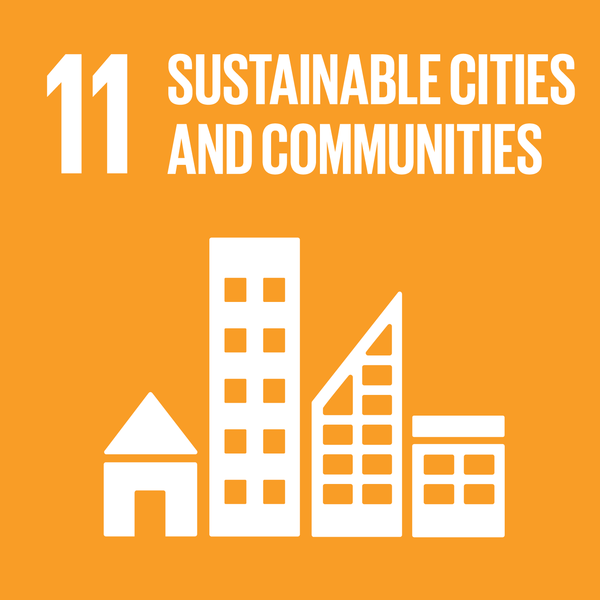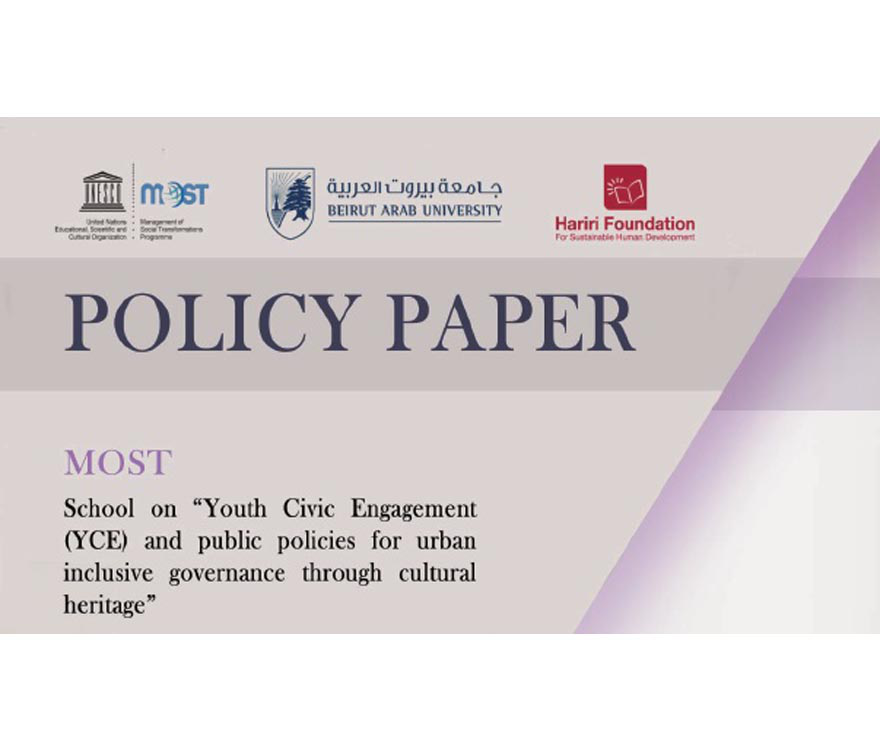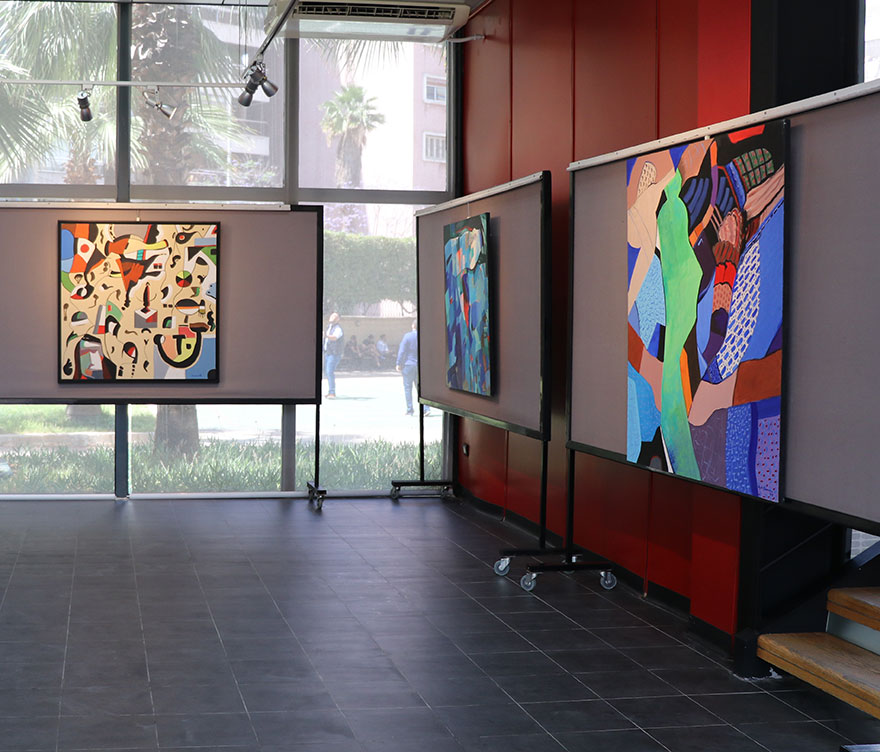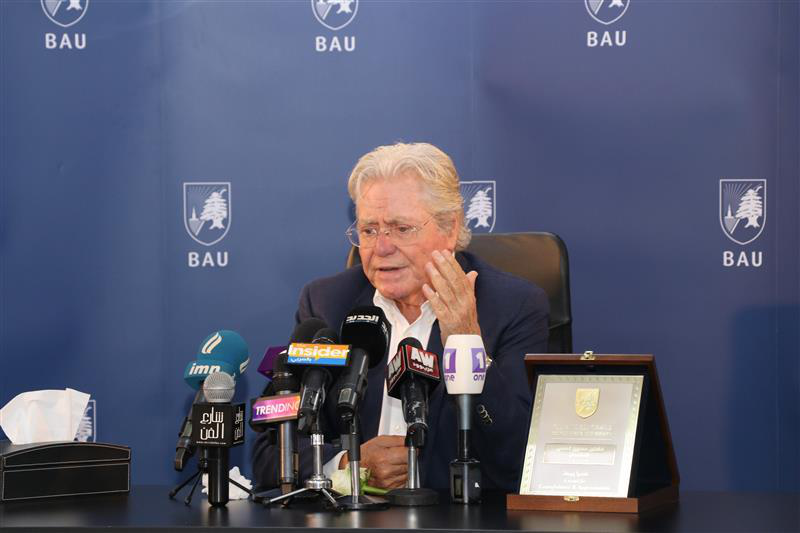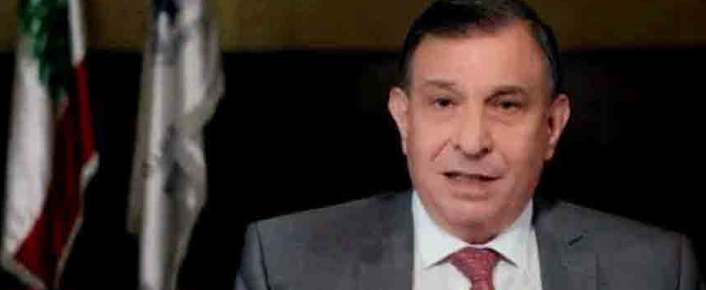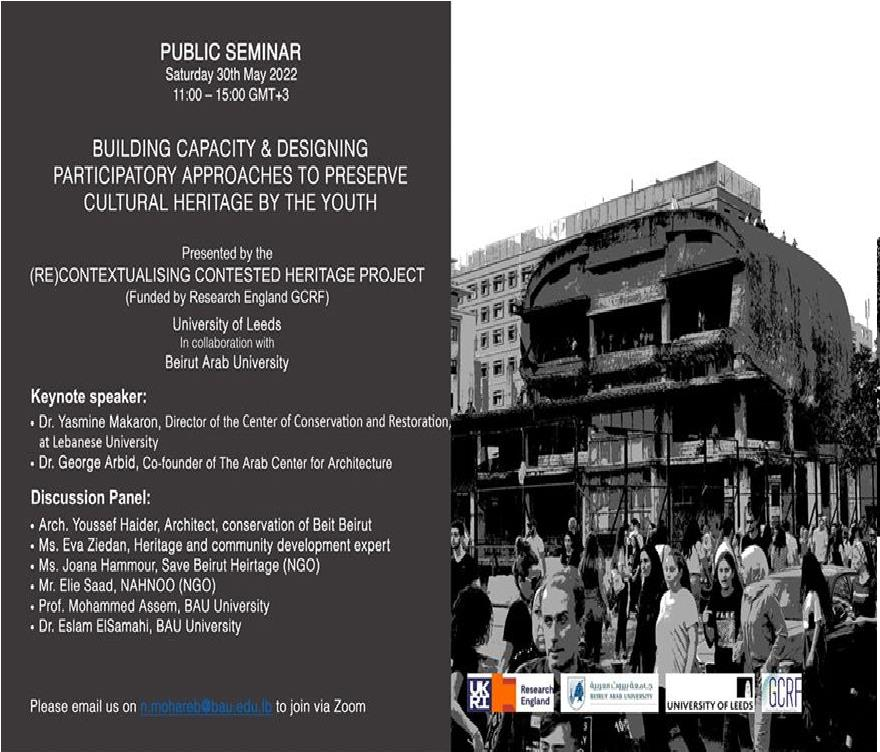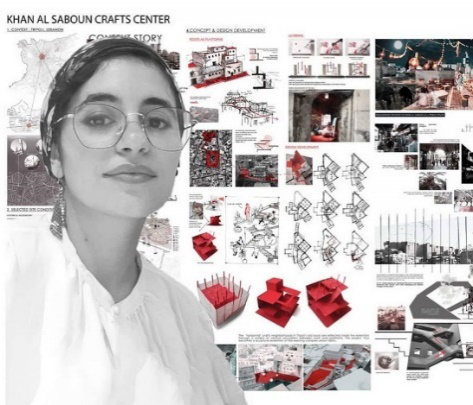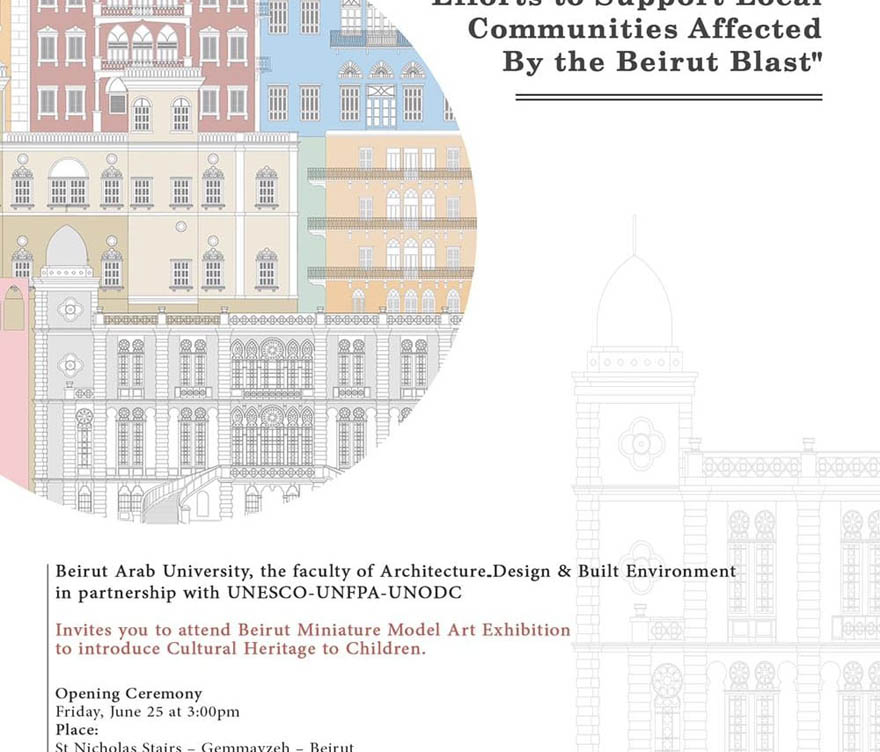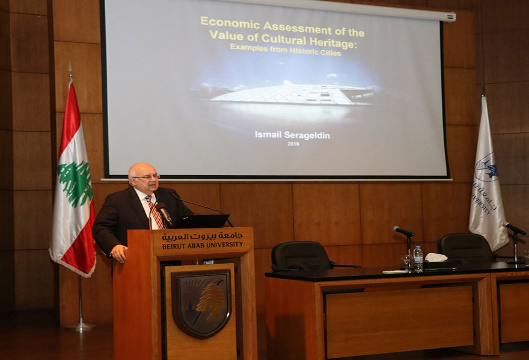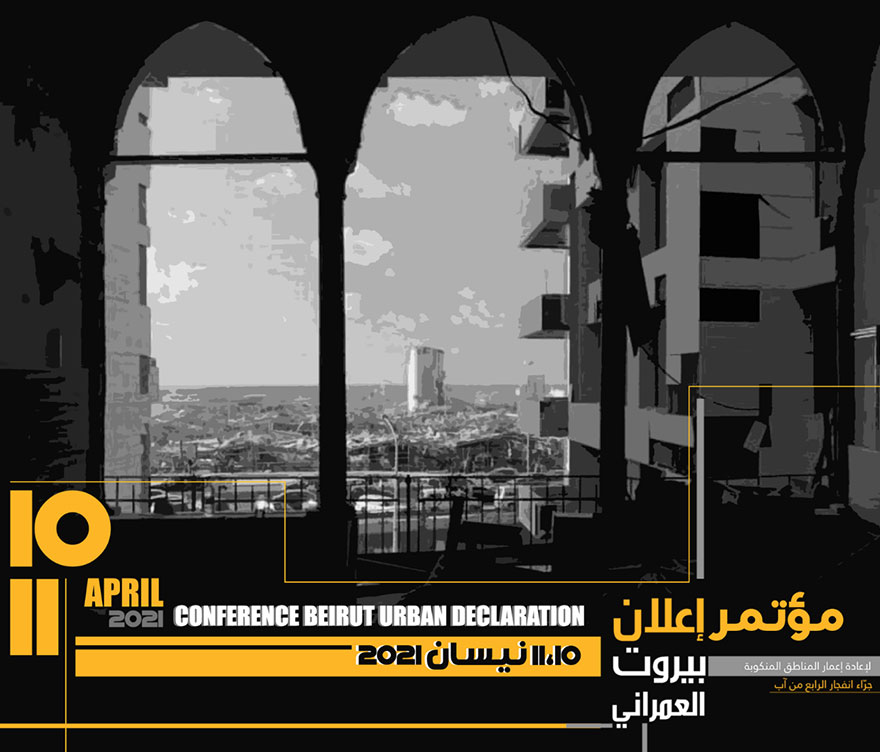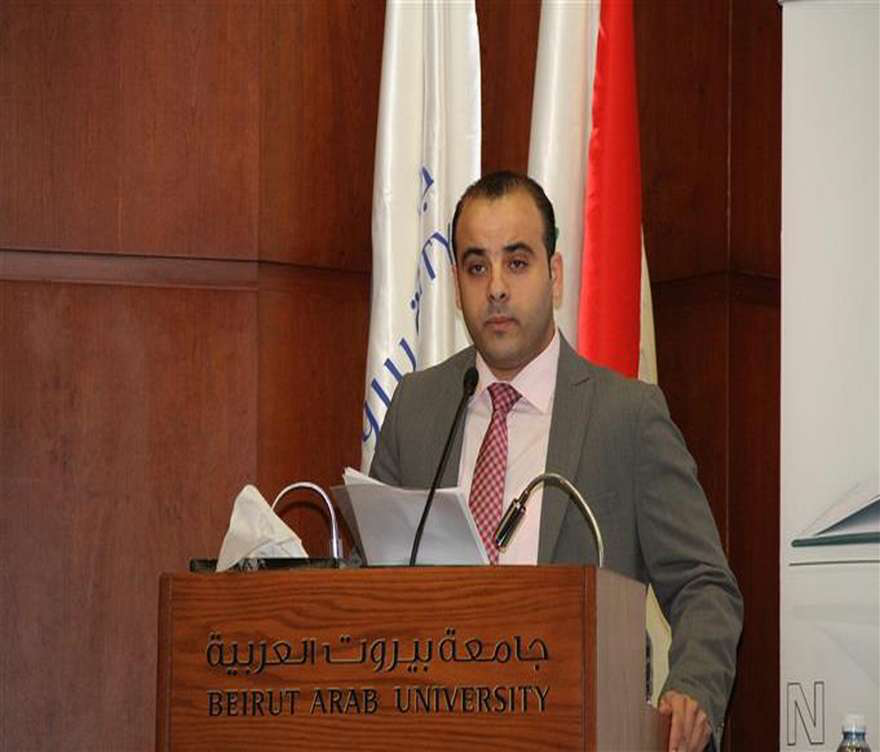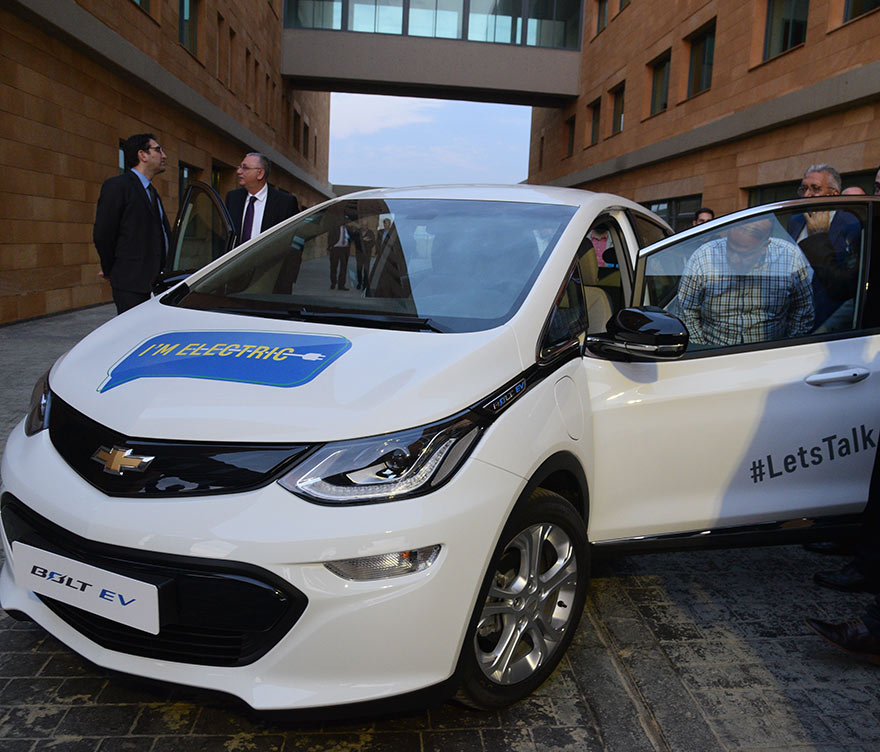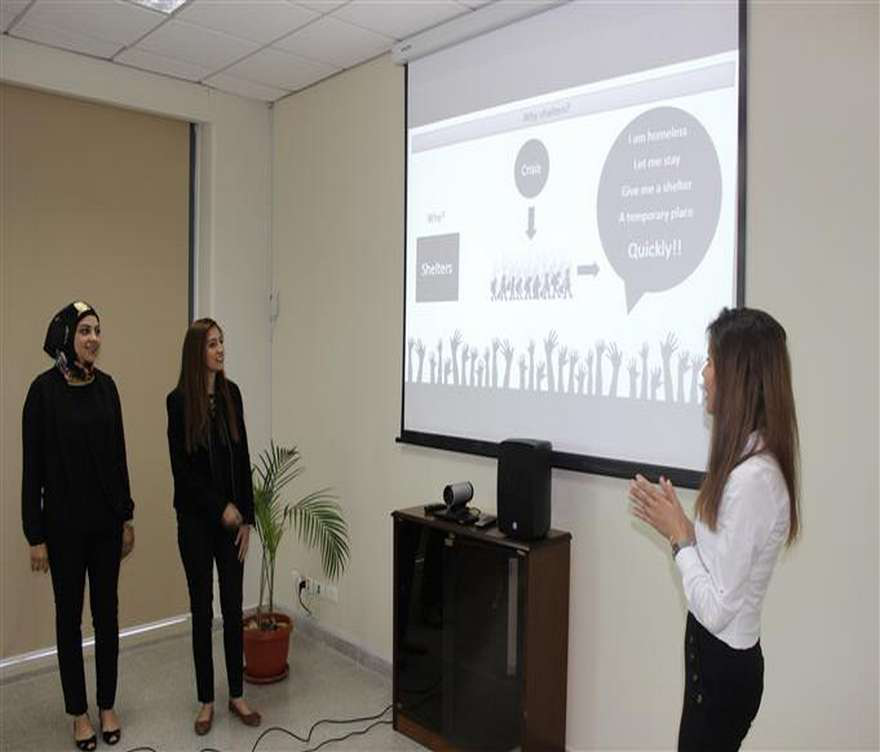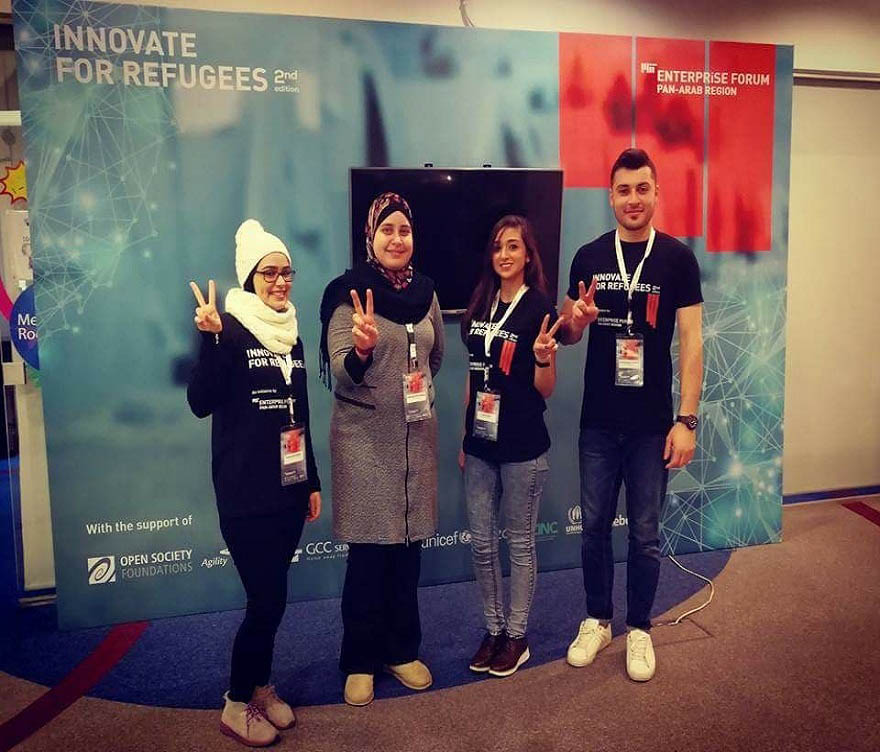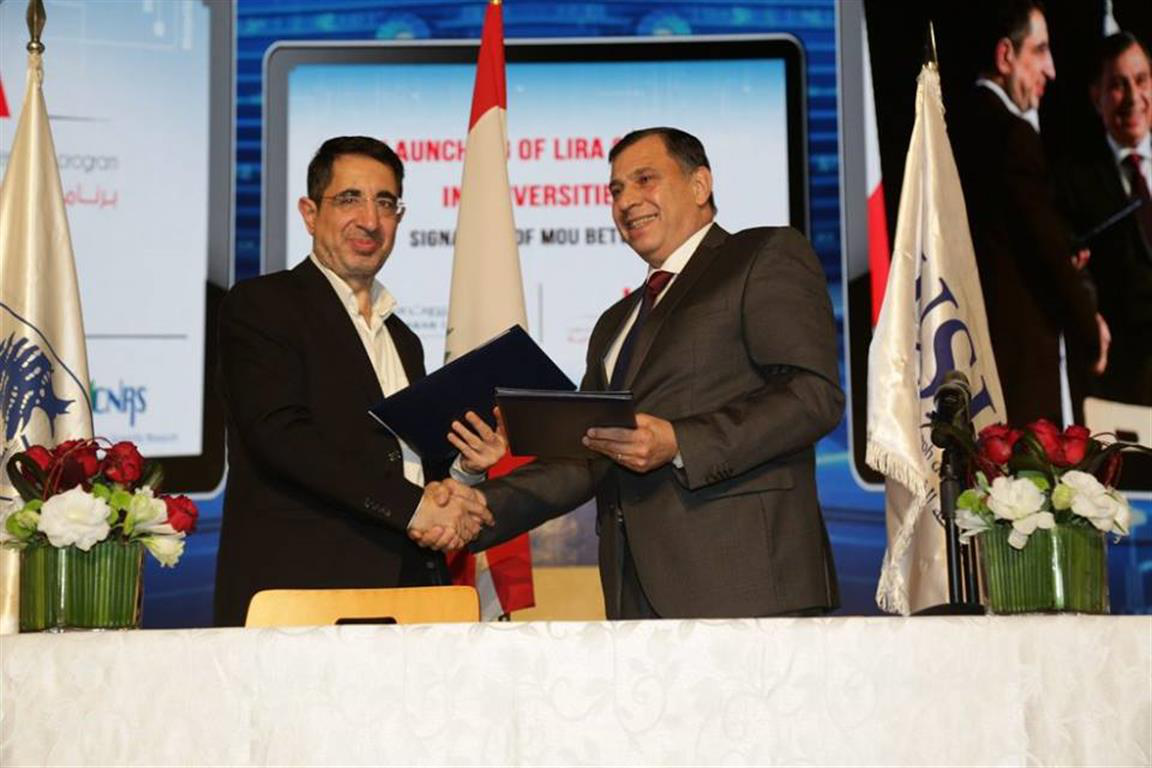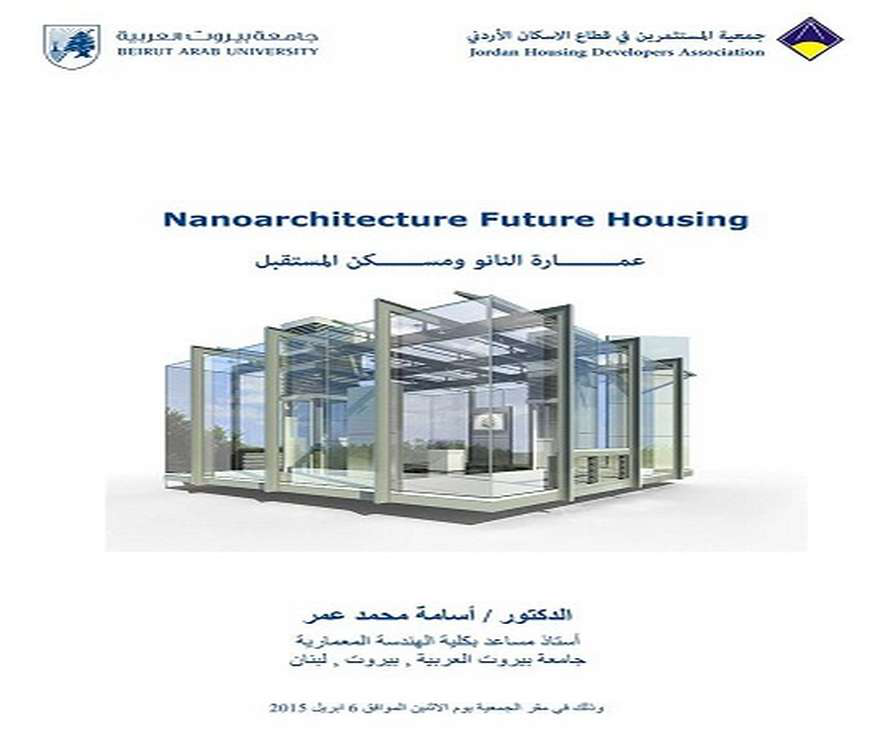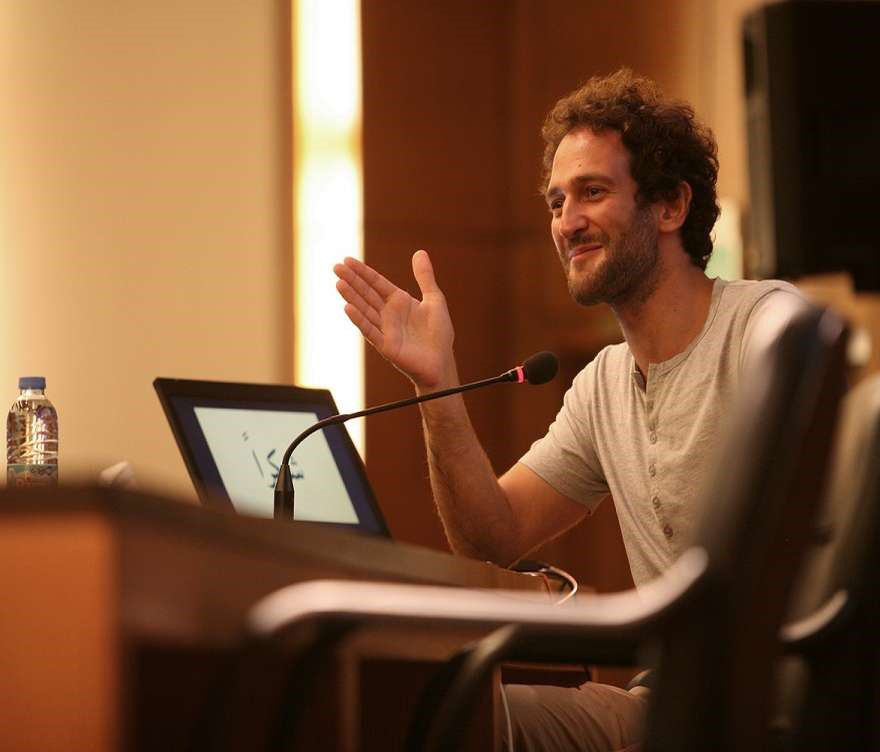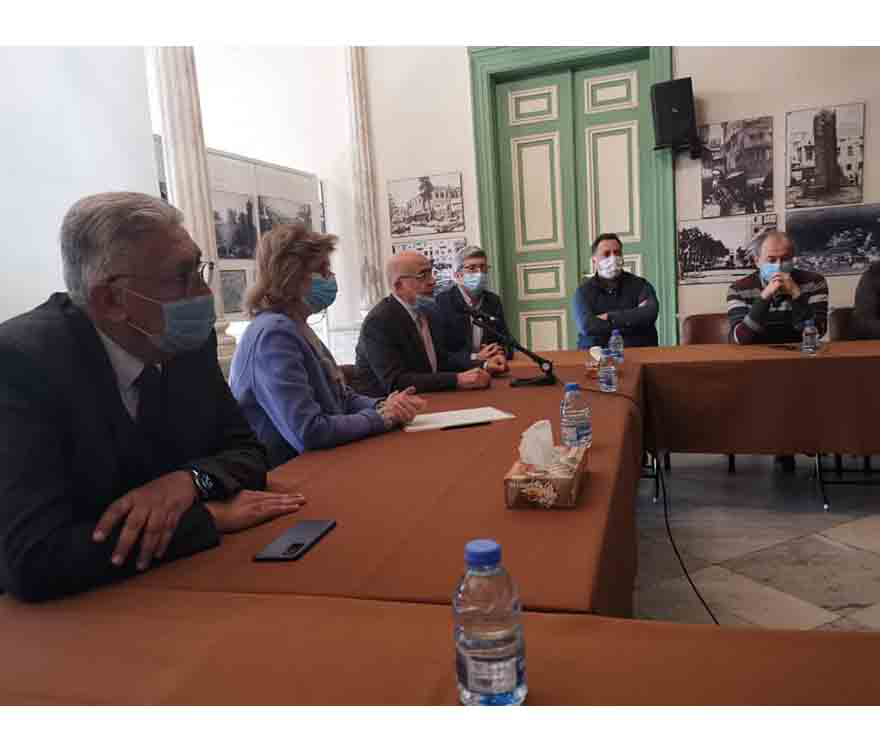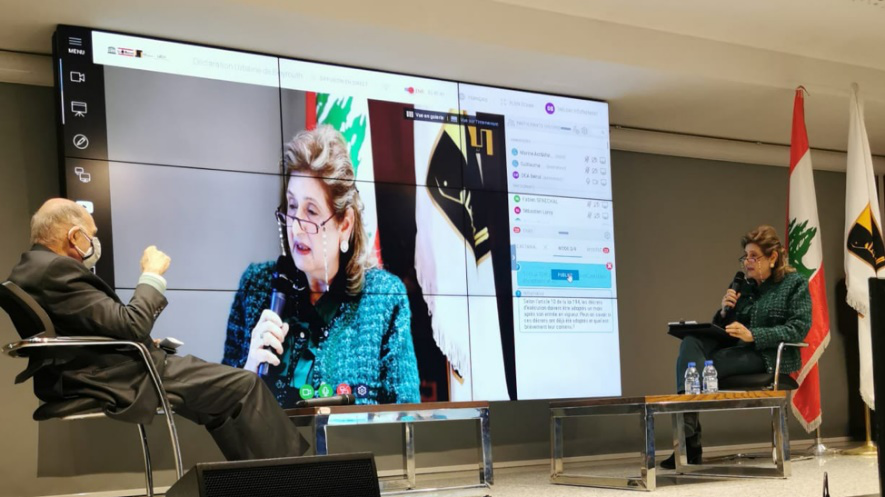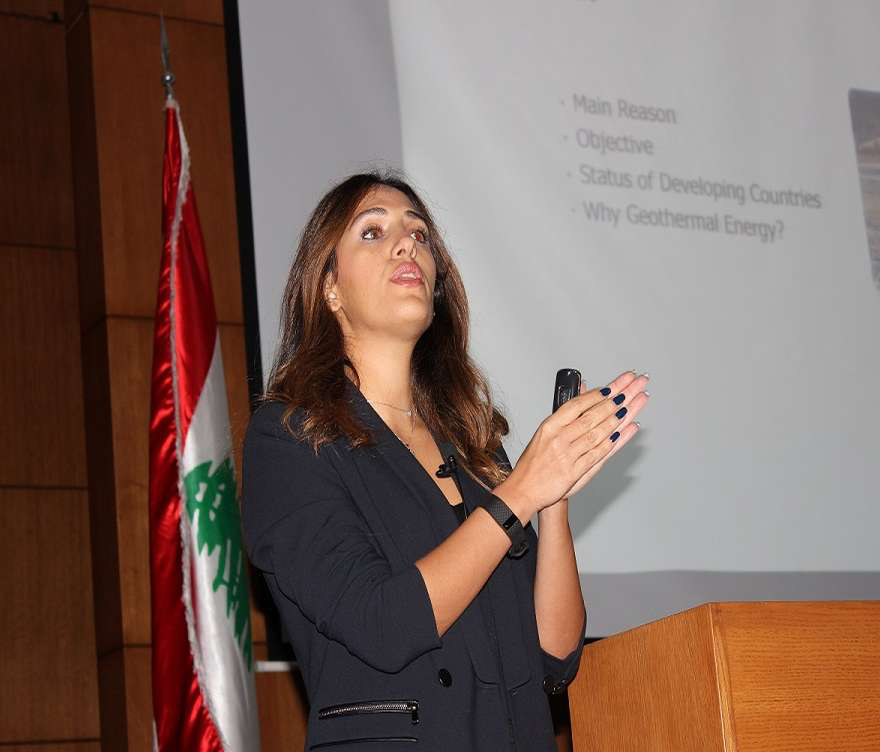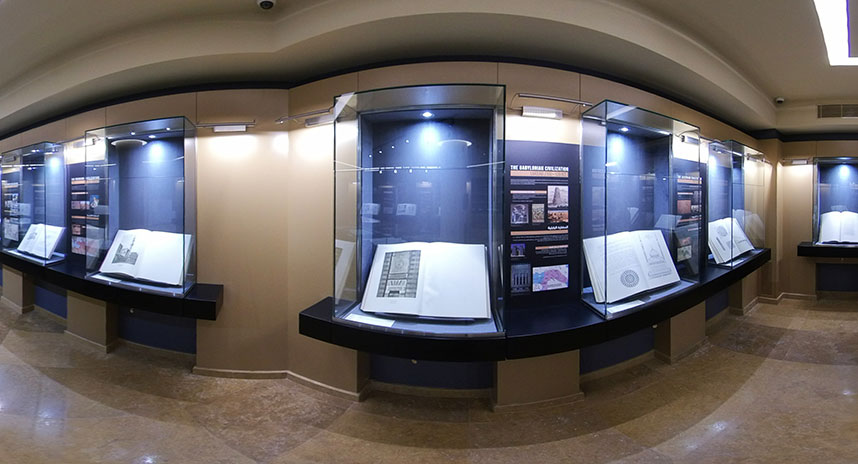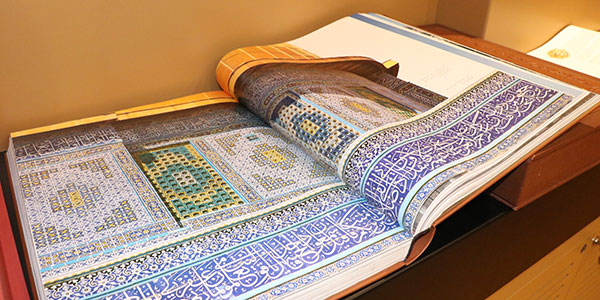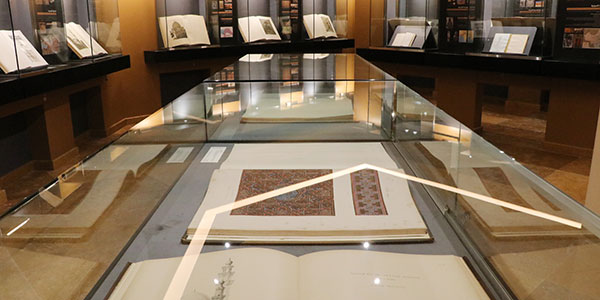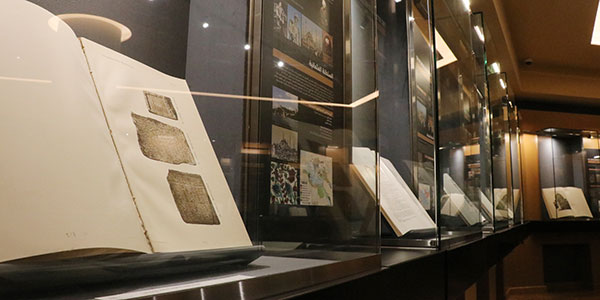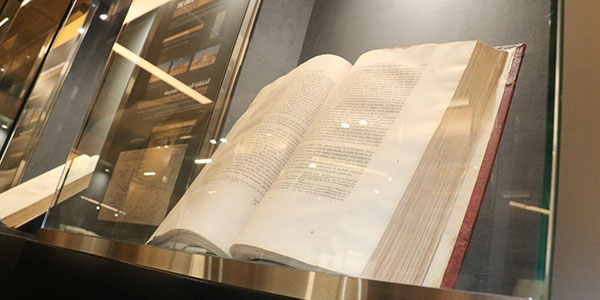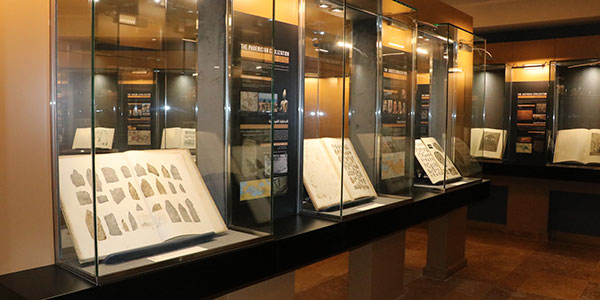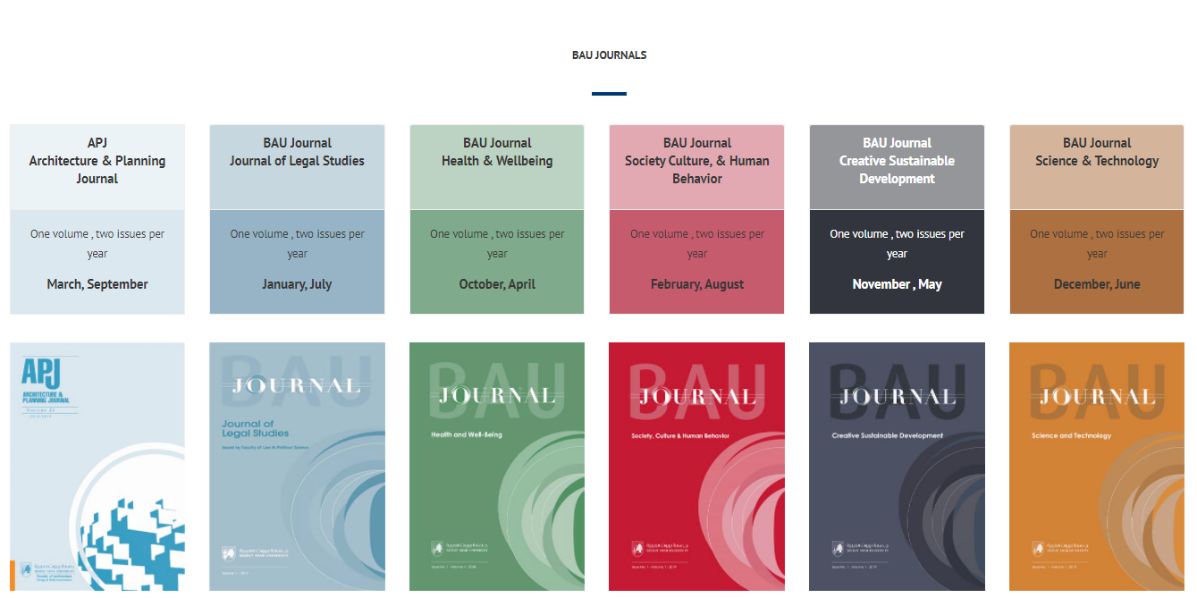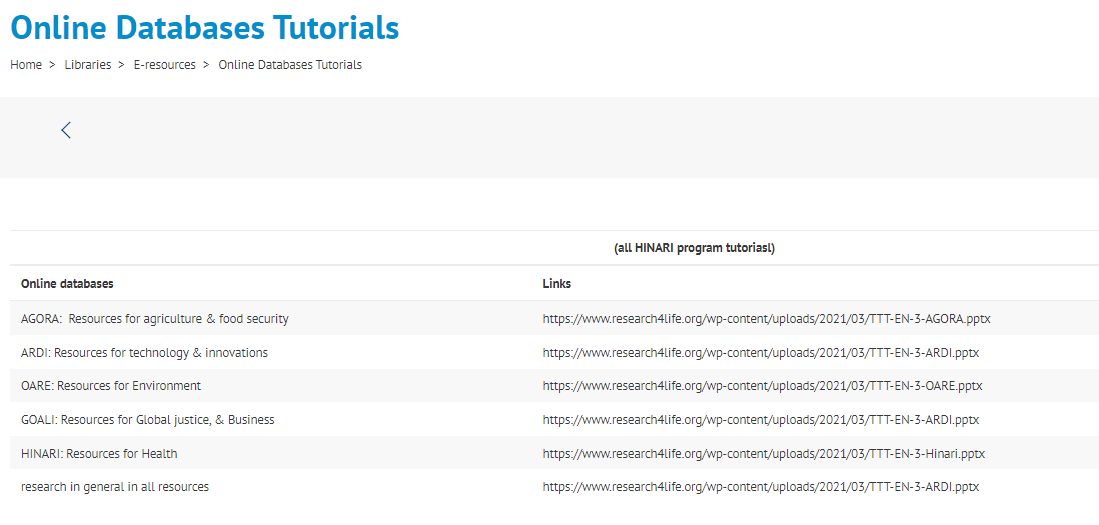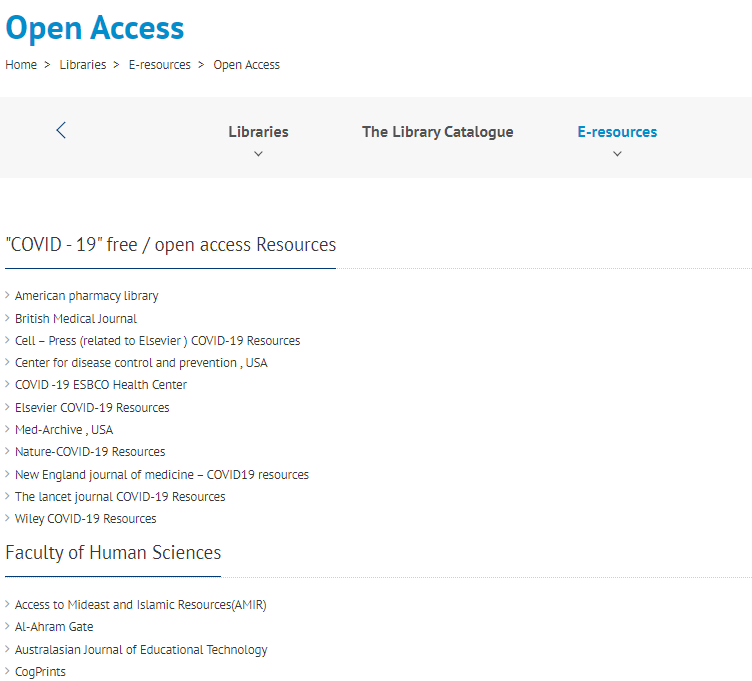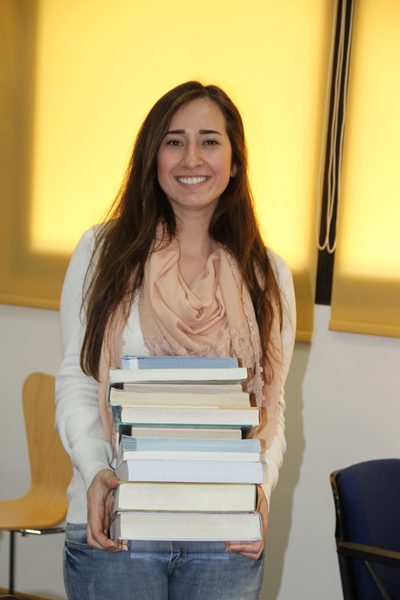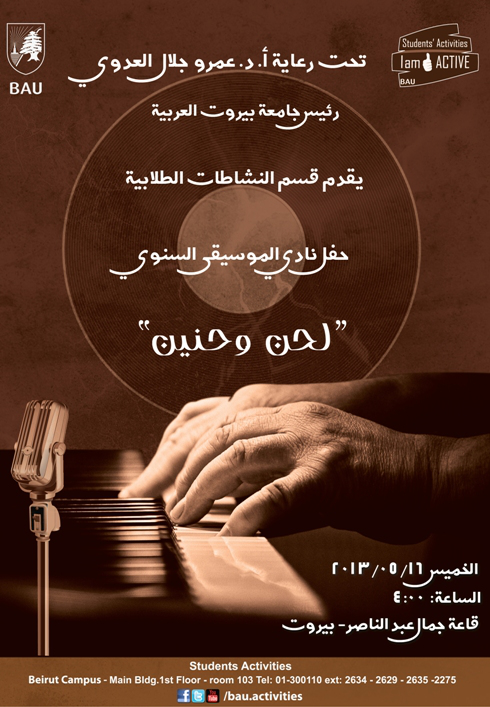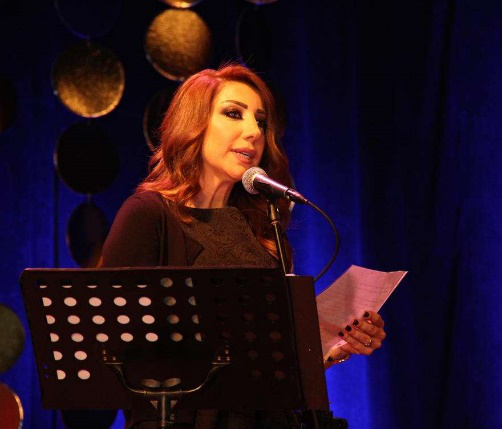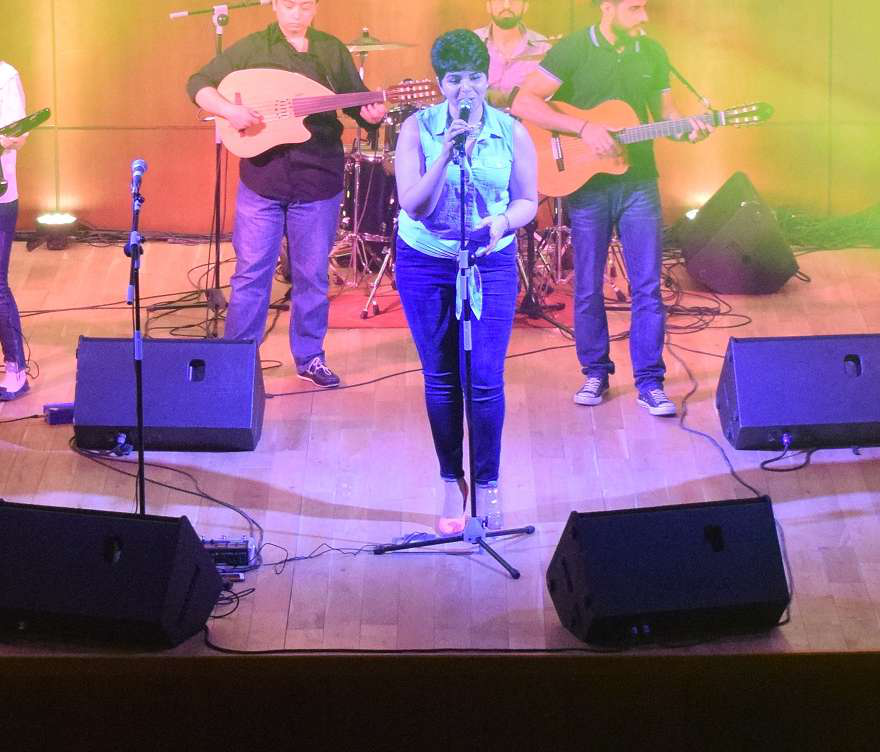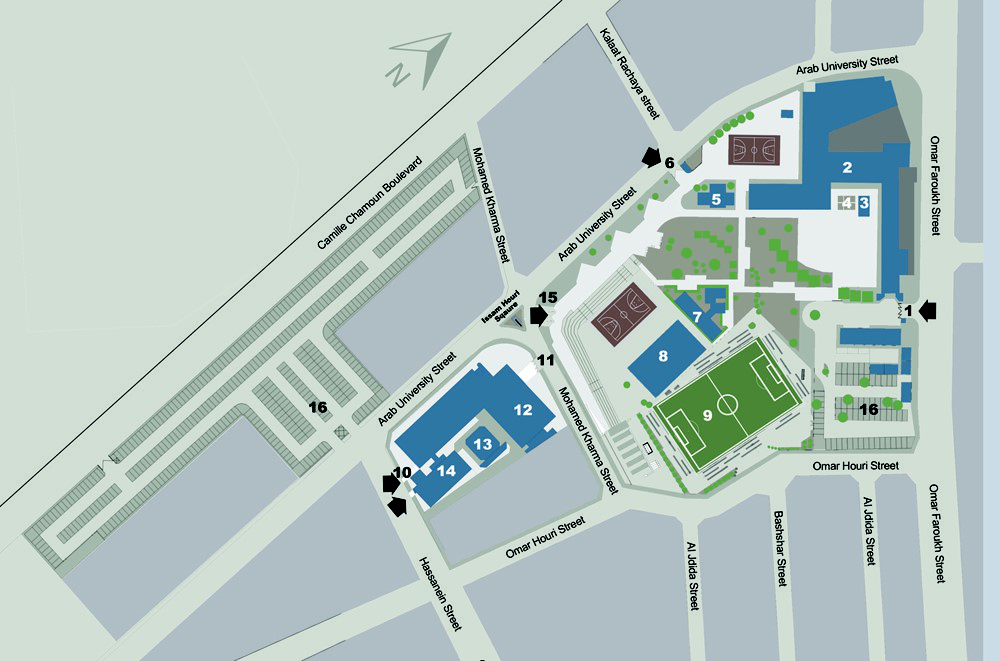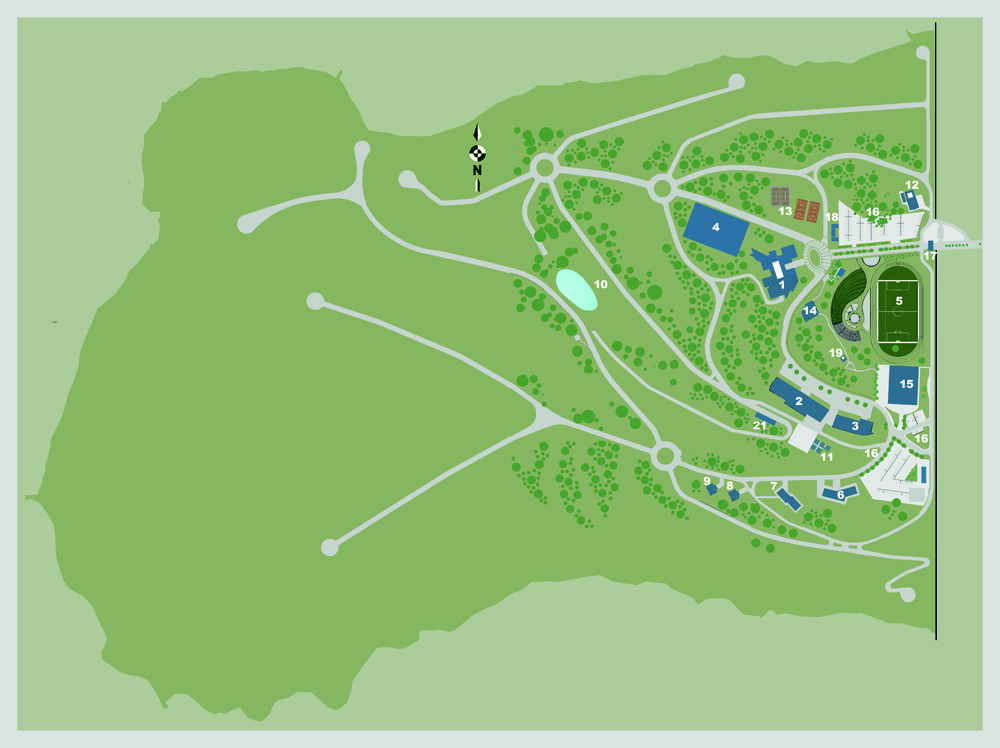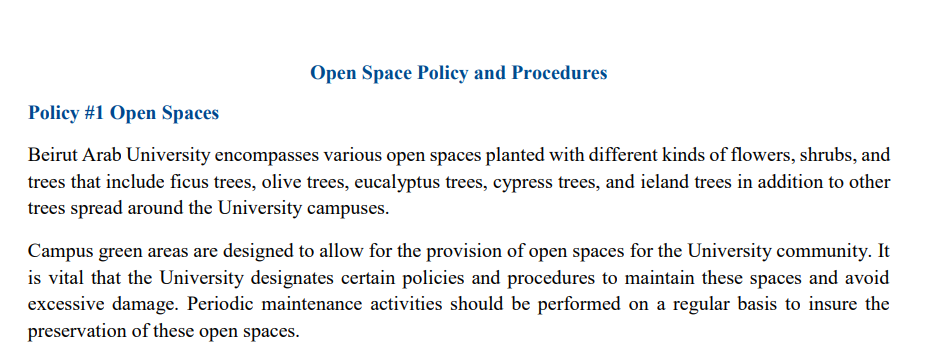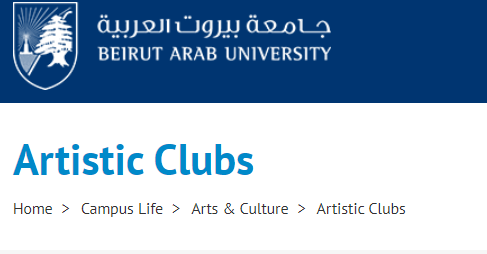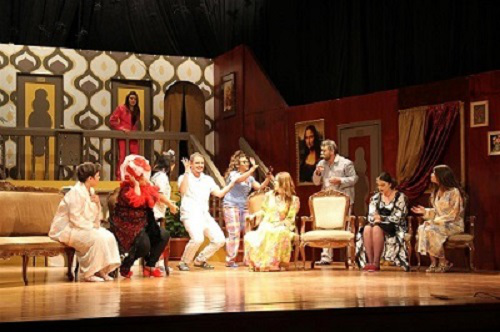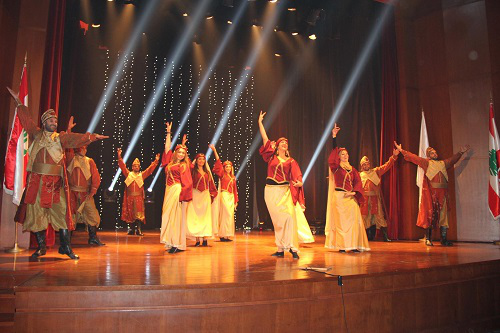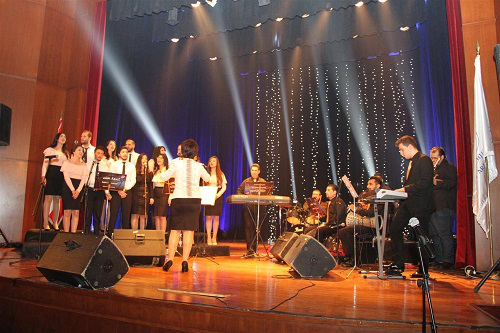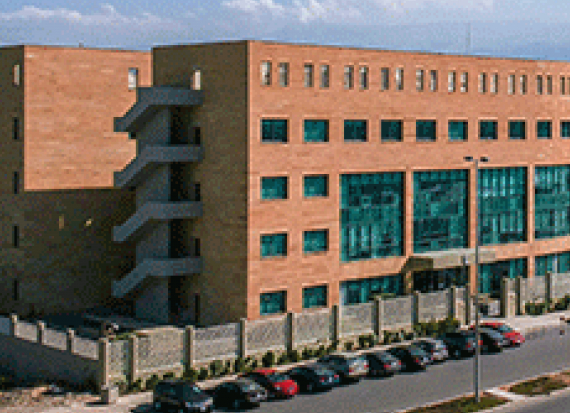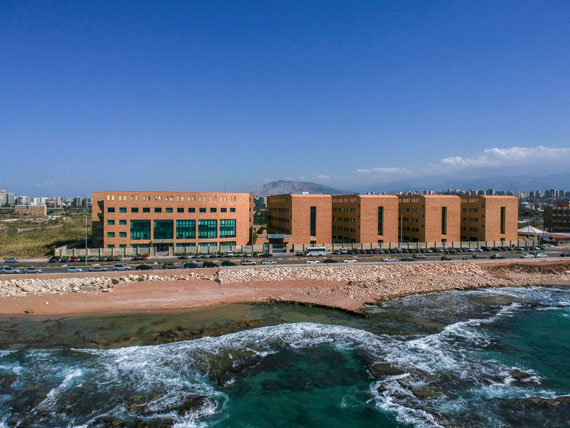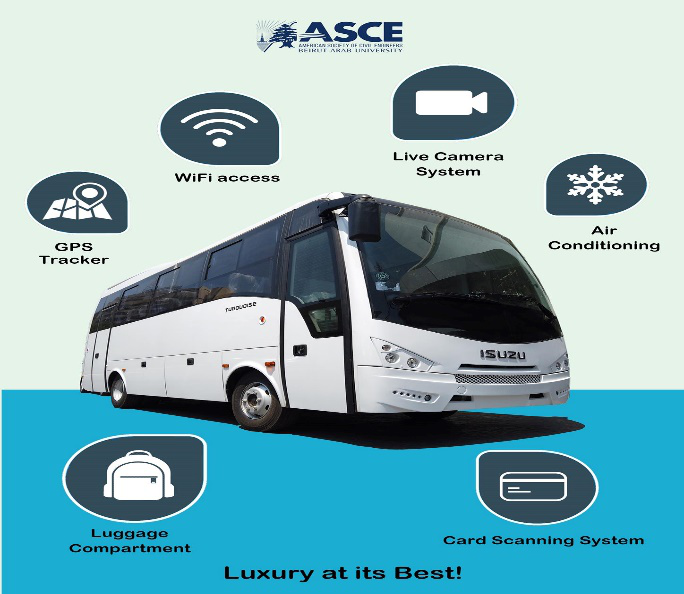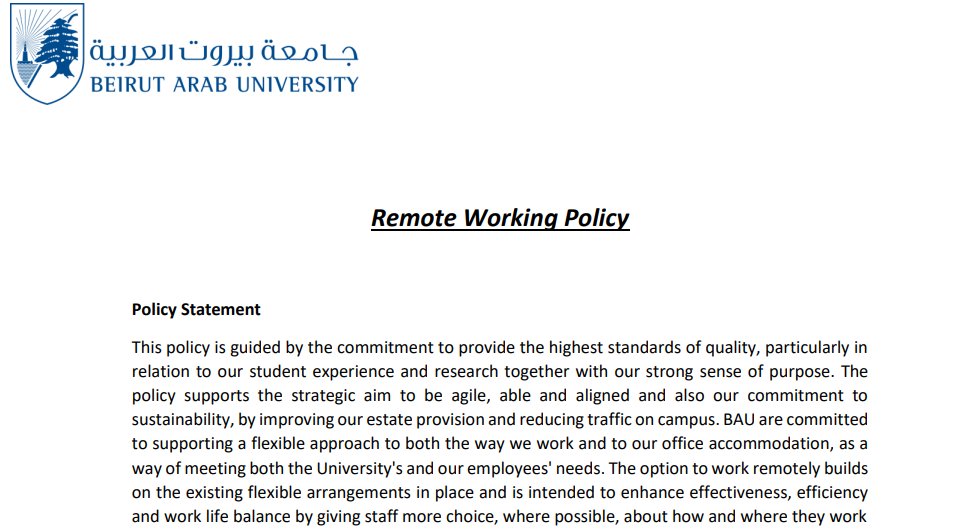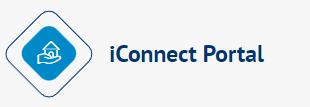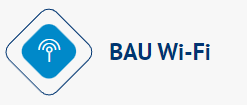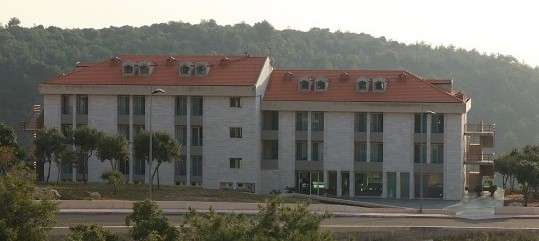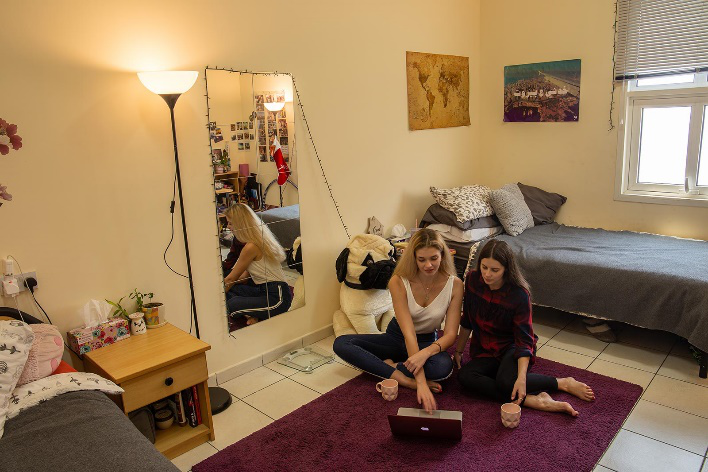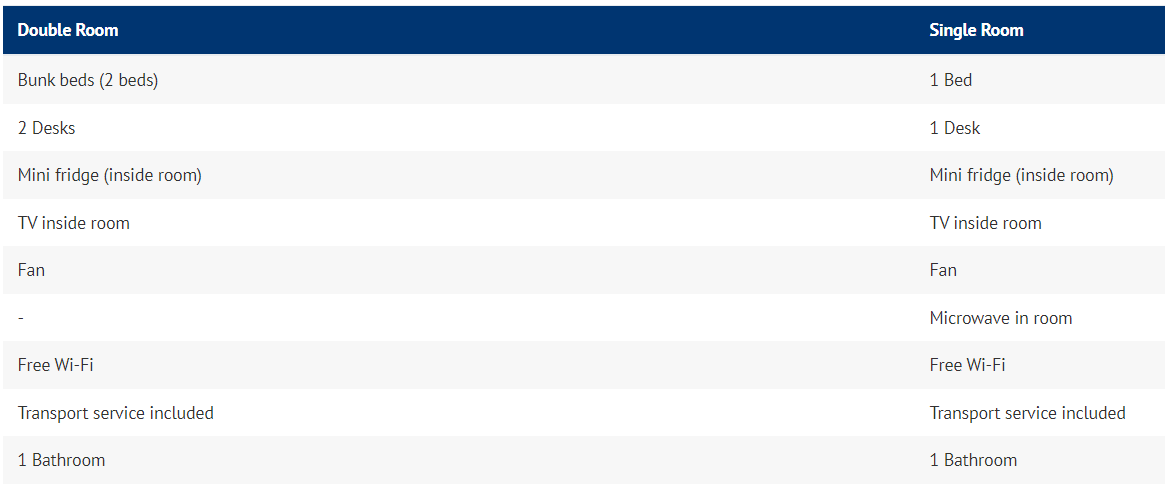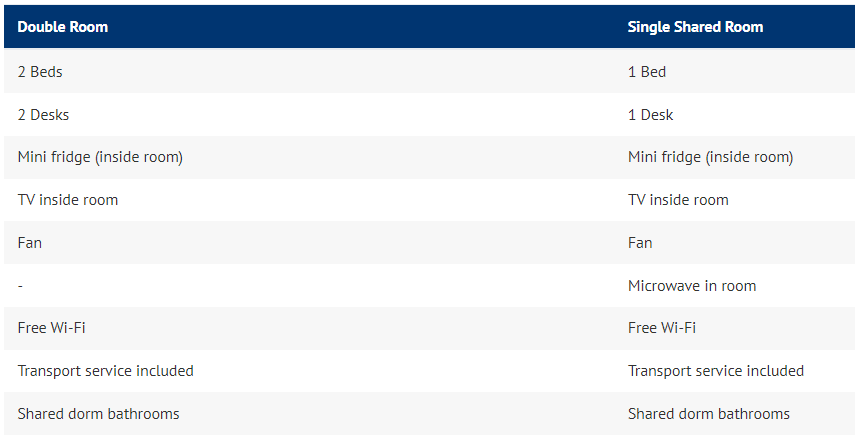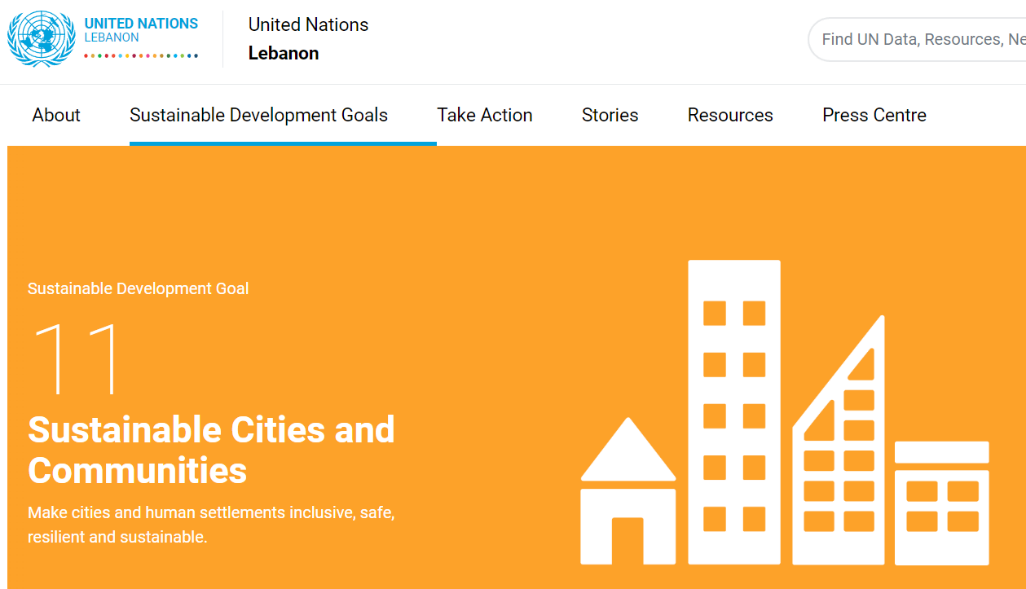SDG 11: SUSTAINABLE CITIES AND COMMUNITIES
Introduction
Sustainable Development Goal (SDG 11 or Global Goal 11) refers to “Sustainable Cities and Communities” and the aim of SDG11 are making cities safe and sustainable means ensuring access to safe and affordable housing, and upgrading slum settlements. It also involves investment in public transport, creating green public spaces, and improving urban planning and management in a way that is both participatory and inclusive.
Lebanon has a rich urban cultural heritage, with a number of the world’s oldest cities. The country has, however, witnessed large demographic changes, including a high level of conflict-induced urbanization and waves of external and internal displacements. Such increasingly complex urban contexts can make it more difficult to maintain social coherence and ensure inclusion. Lebanon support positive economic, social and environmental links between urban, peri-urban and rural areas by strengthening national and regional development planning and substantially increase the number of cities and human settlements adopting and implementing integrated policies and plans towards inclusion, resource efficiency, mitigation and adaptation to climate change, resilience to disasters, and develop and implement, in line with the Sendai Framework for Disaster Risk Reduction 2015-2030, holistic disaster risk management at all levels.
Beirut Arab University contributes to SDG11 by conducting interdisciplinary urban research activities and events, covering all aspects of social, economic and physical change in cities and creating significant impact. BAU promotes the use of big data and innovative research methods to improve social, economic and environmental well-being in cities, and works closely with government, industry and third-sector partners.
University Relevant Events
BAU provides public access to the different events regarding the museum developed by the University where students, staff and people from the local community can access, to learn about history and heritage. The University supports and promotes the historical heritage in Lebanon.
BAU the faculty of Architecture - Design and Built Environment in partnership with Unesco and Hariri Foundation is delighted to publish this policy brief series on “Youth Civic engagement and Public Policies for Urban Inclusive Governance through Cultural Heritage”.
It includes a broad range of topics produced by 6 BAU postgraduate students from the faculty of Architecture - Design and Built Environment and which was presented during MOST (Management of Social Transformations) workshop organized by Unesco, Hariri Foundation and BAU in March 2019.
The University frequently provides free access to the public for the events held and to visit and have a tour inside the museum, with this BAU has the purpose of generating a culture of care for the historical heritage in Lebanon.
Colours, together with their poetic glow, were embodied in artist Abdel Mawla Oweini’s paintings in his exhibition entitled "Spring Festival" hosted by Beirut Arab University in Beirut campus. The event was organized by the Public Relations Administration and was attended by BAU President Professor Amr Galal El-Adawi, BAU Secretary General Dr. Omar Houry, deans, directors, students and a crowd of interested audience.
The exhibition included 13 paintings in which the artist reviewed the communication between the near and the distant in a balanced flow of simplicity, spontaneity and return to the basics of shapes and their visual aesthetics. After the Lebanese and BAU Anthems, Ms. Rima Chehab opened the event saying, "Beirut Arab University has always been a pioneer in nurturing generations of educated youth and motivating them to develop their culture which, alone, grants them identity and excellence in the future."
President El Adawi praised the artist’s work as it touched our spirit with its varied colours and shapes. El Adawi stressed the fact that “the goal of the cultural season at BAU is to activate the artistic and cultural movement that helps develop arts among the students so they become a part of the cultural season that the university is keen to develop and expand year after year".
The Public Relations Administration at Beirut Arab University organised its “Success Story” event for the 6th year in a row with Hussein Fahmi, the Egyptian Actor and Artist, as a guest for this year. The event was attended by BAU President Professor Amr Galal El-Adawi, MPs Dr. Ammar Houri and Dr. Khaled Zahraman, Egyptian Ambassador H.E. Nazih Najjari, BAU family, students and a crowd of Lebanese and Arab Media Figures. As with every year, BAU concludes its cultural season with this event by honoring the success of distinguished personalities.
This year, Artist Hussein Fahmy engaged the audience with his humanitarian, personal and practical experiences after a long journey full of successful cinematic works, plays and series that were characterized by mimicking real-life and humanitarian issues of interest to all Arabs.
In the form of a TV Dialogue, the event was held at Jamal Abdel Nasser Hall- Beirut Campus and moderated by the Director of Public Relations Administration Ms. Zina Ariss.
In her opening speech, Ms. Ariss presented his most successful works, pointing out that he "understood his art from the director’s, actor’s and man’s point of view which rendered him a comprehensive artist who conveyed his thoughts as meaningful humanitarian messages.”She added the title of "the Spring of All Arts" to the tens of titles Fahmy has already had during his artistic career.
From the first moments after Beirut Blast explosion, one of the BAU priorities was to engage in the process of removing the destruction and to mobilize by helping the people in the affected neighborhoods of Beirut. The university has participated, through its students, employees, and the teaching staff, in form of groups that participated in removing rubble and participated in surveying damages, including archaeological buildings in the old neighborhoods.
The real danger is that the rescue plan for the damaged historic buildings is not expedited, by displacing its residents who do not have the capacity to rehabilitate these buildings due to the sensitivity of the origin and the need for expert interventions to preserve the identity and value of these buildings. The step taken by the Order of Engineers and Architects in Beirut to lay down a plan to survey and distinguish buildings of an archaeological nature and pay attention to providing information to those concerned with cultural heritage in general and built heritage in particular.
According to the third weekly report issued by the Order of Engineers and Architects dated on 9/9/2020, and within the surveyed area, 14.1% of heritage buildings are at high risk of collapse/damage and 11.3% are at Mid-risk of collapse/damage showed that nearly a quarter of the surveyed historic buildings were damaged.
The university puts all its capabilities into the urban lab, as well as various equipment, such as a 3D scanning mechanism, and researchers in the field of preserving cultural heritage, including architects and engineers, to contribute with official and non-official bodies, such as the Beirut municipality and the Ministry of Culture represented by the General Directorate of Antiquities, the Order of Engineers and Architects, and civil societies to develop the necessary engineering plans and solutions to save historic buildings that are threatened with collapse and preserve the character of historic Beirut.
In terms of resilience, the post-disaster urban and architectural reconstruction and rehabilitation of cultural built heritage in Beirut should contribute to the sustainable planning agenda of the city. Facing a traumatized society after disastrous events, such as the port blast, the urgent conservation practice will give a sense of localness and recreate the inhabitant’s collective memories concerning the image of their city, which promotes healing on a mid-term plan.
Faculty of Architecture- Design and Built Environment, Beirut Arab University (BAU) in its second collaboration with University of Leeds (UK) are inviting you to the online public seminar ‘Building Capacity & Designing Participatory Approaches to Preserve Cultural Heritage by the Youth’ as a part of the funded project with the title ‘(Re)contextualizing contested heritage project’, #ReConHeritage, funded by Research England GCRF.
The jury praised the project since it provided a comprehensive study on the relationship between social traditions, crafts and the urban fabric of the city. It also extracted realistic solutions to revive the urban heritage and linked it to the surrounding streets.
Within the framework of “Youth-Led rehabilitation efforts to support local communities affected by the Beirut Blast" initiative, BAU – Faculty of Architecture, Design & Built Environment in partnership with UNESCO, UNFPA, and UNODC is pleased to invite you to attend the opening ceremony of “Beirut Miniature Model Art Exhibition to introduce Cultural Heritage to Children” on Friday, June 25 2022 at 3:00 pm at ST Nicholas Stairs, Gemmayzeh.
Beirut Arab University organized a lecture delivered by Dr. Ismail Serageldine entitled “The Value of Cultural Heritage” at Omar Houri Hall – Debbieh Campus.
The Faculty of Architecture - Design and Built Environment at Beirut Arab University participated in Beirut Urban Declaration Conference for restoration of afflicted areas after the huge explosion that occurred on August four.
The conference was organized by the Order of Engineers and Architects in Beirut in cooperation with the Faculties of Architecture in Lebanon whereby this event came after long preparations and workshops in addition to direct field work which started directly after Beirut Port explosion on August 4, 2020. Since then, Professor Ibtihal El-Bastawissi, the Dean of the Faculty of Architecture- Design and Built Environment, has worked within the organizing committees of the Deans of Faculties of Architecture for Beirut Urban Declaration which included five sessions.
She invited a group of university professors from various faculties to participate in all aspects of conference activities in coordination with the Dean of Faculty of Human Sciences, Professor Mayssah El-Nayal. Professor El-Bastawissi also participated in a workshop organized by the Order of Engineers and Architects in Beirut in cooperation with the French government, UNESCO and the International Union of Architects (UIA) in order to achieve this declaration.
The university had interventions in more than one session in the conference where Professor Hassan Hallak gave a lecture entitled "The Economic and Social Role of the Beirut Port," in which he talked about the history of the development of Beirut Port and its economic and social impacts on the city. Dr. Khaled Sadek gave a lecture under the title of "The Urban Fabric of Beirut between History and the Present" in which he dealt with the development of Beirut's urban fabric during the historical eras that the city has gone through.
He mentioned the human values that the city has acquired, which are based on reverence of freedoms, respect of intellectual pluralism and openness to different civilizations. In the fourth session, Dr. Hiba Mohsen gave a lecture entitled "Rehabilitation and Restoration of Damaged Heritage Buildings", in which she discussed the importance of preserving the heritage and the risks that threatens it, in addition to several proposals for the rehabilitation and construction of old neighborhoods.
Beirut Arab University hosted “The Second Specialized Arabic Language Forum – Oral Communication: A Skill and a Mission” on its campus in Beirut. The event was organized in cooperation with the Educational Institutions Network, under the sponsorship of Prof. Amr Galal El Adawi, President of the University, and was attended by Dr. Omar Houri, BAU Secretary General; the deans of faculties; Mr. Kamel Kozbar, President of the Educational Institutions Network; Prof. Ahmed Fares, honorary guest of the Forum; as well as a large crowd of Arabic language teachers from the participating schools.
The Forum aimed at strengthening Classical Arabic, elevating it from the realm of theories and rules to the arena of interaction and dialogue, in the light of the current submission to foreign languages.
This current reality is about to obliterate the aesthetics and importance of Arabic, while wiping out its cultural entity. This can only be combated by activating dialogue and discussion, as well as an alternative culture among students, to revive the language. The Forum opened with a recitation of the Holy Quran, followed by the Lebanese National Anthem, the BAU Anthem and the BAU Introductory Film.
The Master of Ceremony was Mr. Omar Farouk El Nakhal who welcomed the attendees and the audience and announced the launching of the event, describing the Forum as an industrious effort to track down the problems faced by the language, convening at a pan-Arab university that upholds Arabic and implements many of its educational facilities to bring into being this grand idea.
Prof. Amr El Adawi, President of BAU stressed in his word on the necessity to preserve Arabic, the language of heritage, originality and intellect, and the language of communication and education. He emphasized that there should be greater attention paid to research, since it is a basic tool for development, and conducive towards the scientific and intellectual renaissance of our Arab communities.
As countries around the globe are seeking environment-friendly means of transportation, the Faculty of Engineering at Beirut Arab University- Tripoli Campus organized a lecture entitled " Infrastructure and Design Adaptation for Electric Vehicles in North Lebanon ", highlighting the infrastructure requirements for electricity supplies and shipping stations in North Lebanon in preparation for the use of this type of transport in the region.
The lecture was attended by HE Mr. Najib Mikati represented by Engineer Bassem Khayat, HE Major General Ashraf Rifi represented by Mr. Kamal Ziadeh, President of the Order of Engineers and Architects in Tripoli Engineer Bassam Ziadeh, President of the Chamber of Commerce, Industry and Agriculture of Tripoli and North Lebanon represented by Mr. Fawaz Hamdi, Deans of the Faculties of Engineering at Madina University and the Lebanese Universities, Vice President for Tripoli Branch Professor Khaled Baghdady and a crowd of interested audience.
In his welcome speech, Professor Baghdady stressed the importance of the role of universities in keeping abreast of the rapid developments in all fields as well as providing scientific proposals and solutions to catch up with global development.
Engineer Ziadeh discussed the reasons behind the global tendency to use electric cars. He referred to the first steps taken by Lebanon to catch up with this development and presented the problems and challenges related to the provision of electricity infrastructure, maintaining that the field of electric cars will provide a new job market for engineers in various fields.
Dr. Shadi Nahra, Associate Professor at the Department of Electrical and Computer Engineering at BAU explained the most prominent international laws that guarantee the transition to using electric cars by 2025 when their prices are expected to be equal to fuel-powered vehicles. He also explained how electric cars work and the possibility of manufacturing them in Lebanon, addressing the potential technical challenges that might arise.
The Faculty of Architectural Engineering at Beirut Arab University - Tripoli Branch offered two temporary housing units for refugees and the displaced. The two units are of low cost and their ability to protect the inhabitants from different environmental conditions for long periods of time. These units use materials available locally that are also recyclable and can be reused.
The Minister of Social Affairs Mr. Rachid Derbas visited the Campus whereby he reviewed the project and held a business meeting with BAU Vice-President for Tripoli Branch Affairs, Prof. Khaled Baghdadi, Mr. Ahmad Sankari, the Branch Coordinator, Dr. Nabil Mohareb, Director of the Faculty of Architectural Engineering, and Dr. Ahmed Lakani, Director of the Faculty of Engineering. BAU students had prepared six designs of temporary housing units throughout the year, two of which were chosen to be executed on campus.
The first concept was executed by Engineers Fatima Khaled, Sima Sheikh and Nadine Hayek. It is a design that focuses on flexibility, mobility, lightness and ease of assembly, requiring no experts. The unit is square shaped of area 17.5 m2, designed to house five persons in accordance with the specifications of the High Commission of Refugees.
The main structure is made of steel, while the fabric is made of water- and heat-proof material. The floors are made of light wood. The construction period/unit is 8 hours, while opening or closing the unit needs about half an hour. The total cost of the project was $2340.
The graduates of the Faculty of Architecture-Design and Built Environment at Beirut Arab University in Tripoli came among the top five in the "Innovate for Refugees" competition-second edition organized by the MIT Enterprise Forum Pan-Arab Region, one of another 28 MIT global branches. The competition provides an opportunity to support emerging companies that provide technology-based services for the refugees.
BAU’s "Hope in Sand and Pipes" team, composed of students Sarah Maasrani, Fatima Block, Saleh Al-Zanar, Hilal Moussa, Ghina Yamak and Abdulrahman Ghamrawi, presented a Master's Project in the form of a refugee housing unit for temporary residence. The design was examined and developed under the supervision and assistance of the professors at the Faculty of Architecture-Design and Built Environment.
The design of the unit focused on the use of recyclable and reusable materials available in the local market without the need to import or manufacture them specifically for the residential unit. The unit installation does not require specialized laborer’s, which allows the refugees to create their own, in addition to their ability to choose internal furniture to make the most of the space available.
Among 2,000 participants from around the world, only 20 projects including BAU’s were qualified for the next level. Over three days, entrepreneurs met in Jordan and took advantage of the MIT workshop to develop the final presentation of the project. The initiatives were presented in two stages to two juries specialized in entrepreneurship and refugees’ affairs.
Together with 10 other initiatives, BAU’s project was qualified for the finals to be later selected among the top five in the world to obtain the support of the organizers of the competition.
The Faculty of Engineering- Civil Engineering Department- at Beirut Arab University won the First Place Prize in the Competition held in parallel with the “13th Technology and Industrial Innovation Forum” organized by the “Lebanese Industrial Research Achievements Program” in cooperation with the “Association of Industrialists in Lebanon” and the “National Council for Scientific Research (CNRS)”.
The winning students were: Adel Shahrour, Bayan Katello, Marwa Shbaro, Hasan Shakhashiro, Mahmoud Itani and Wassim Manasfi won the First Prize in addition to receiving the Best Supervisor Award. The project is a three-dimensional printer that can print any conceivable geometric shape (90-90-90 cm) drawn on a computer to become horizontal slides that are printed continuously and quickly to become an architectural model.
The project took a long time and underwent a number of experiments and modifications. This project paves the way for the possibility of manufacturing a printer with large dimensions so that a complex of prefabricated houses can be constructed to provide housing in the event of disasters or wars in record time without the need for a large number of workers and equipment in the construction of storeys.
The Faculty of Architectural Engineering, Beirut Arab University, is taking steps towards internationality. After obtaining RIBA I accreditation and sending its staff to participate in international conferences and public lectures. Dr. Osama Omar had been invited to give a public lecture under title ‘Nanoarchitecture Future Housing’ in Jordan Housing Developers Association, Amman, Jordan.
The lecture focus on the role of Nanotechnology in Architecture to reach Future Housing by produce new materials that have new properties, which help to protect indoor spaces and built new trends of architecture called Nanoarchitecture which friendly for environment.
Beiut Arab University, Faculty of Architectural Engineering is hosting one of the most important series of lectures Four pioneering architects and artists from Spain and Portugal are discussing their work explaining the intersection between digital technologies and art with the current architecture pedagogies.
In accordance with the new demand in design education, the introduction of design workshops in architectural curricula shall assist the investigation of the form, building components, and material attributes.
In that matter, BAU Constructing the Future (CoF) Lecture Series is a symposium that seeks to promote not only art and architecture, but also discourse between different advanced and current modelling, construction and fabrication strategies.
After finalizing all the tasks of Nawfal Palace 3D Scan Project by a specialized team in the field of 3D scanning from Beirut Arab University- Faculty of Architecture, the deliverables and outcomes were submitted in a ceremony organized by Tripoli Municipality in its premises in Tripoli .
The ceremony was attended by Tripoli Mayor Dr. Riad Yamak, and Dr. Bassem Bakhash Chairman of the Education and Culture Committee from Tripoli Municipality while BAU was represented by the vice president of Tripoli Branch Affairs, Professor Khaled Baghdadi, Professor Ibtihal Youssef El-Bastawissi, Dean of the Faculty of Architecture- Design and Built Environment and Dr. Nabil Mohareb,Faculty Director for Tripoli Branch.
The ceremony was also attended by the Project Sponsor Mr. Mustapha Jazar CEO at LASeR and BAU team who worked on the Project: Dr. Kareem Galal and the students Khoder Bahr Joujou, Hadi Hassan Jalloul, Abdul Karim Rabie Oweidat, and Muhammad Nour Maher Abu Ammo.
During the ceremony, Prof Ibtihal, has appreciated the generous hospitality and the facilities provided by Tripoli municipality during the site works and highlighted the importance of cooperative activities between the university and the civil society in Lebanon.
The Participation of the Dean of the Faculty of Architecture in the OEA Workshop on the Reconstruction of the Neighbourhoods affected by the 4th of August Blast within a National Vision for Sustainable Development Policies. The Dean of the Faculty of Architecture, Design and Built Environment, Professor Ibtihal Youssef El-Bastawissi, participated in the workshop organized by the Order of Engineers and Architects in Beirut in cooperation with the French Government, UNESCO, and the International Union of Architects (UIA).
Professor El-Bastawissi participated in the fourth session covering the legal aspects of the reconstruction process. the session was carried out in cooperation with the Ministry of Culture and the General Directorate of Antiquities in Lebanon. While moderating the public discussion panel at the end of the axis, Professor El-Bastawissi stressed on the importance of this axis, as well as all the other axes of the workshop which complement each other and enriched the studies carried out by the Architectural Faculties in Lebanese universities in collaboration with Order of Engineers and Architects in Beirut.
Professor El-Bastawissi thanked the President of the OEA, Jad Tabet, for organizing this workshop and for all the efforts he is doing to keep up with the reconstruction of the districts devastated by the explosion of August 4, 2020. The Dean of the Faculty of Architecture, Design and Built Environment, Professor Ibtihal Youssef El-Bastawissi, participated in the workshop organized by the Order of Engineers and Architects in Beirut in cooperation with the French Government, UNESCO, and the International Union of Architects (UIA).
Professor El-Bastawissi participated in the fourth session covering the legal aspects of the reconstruction process. the session was carried out in cooperation with the Ministry of Culture and the General Directorate of Antiquities in Lebanon. While moderating the public discussion panel at the end of the axis, Professor El-Bastawissi stressed on the importance of this axis, as well as all the other axes of the workshop which complement each other and enriched the studies carried out by the Architectural Faculties in Lebanese universities in collaboration with Order of Engineers and Architects in Beirut.
Professor El-Bastawissi thanked the President of the OEA, Jad Tabet, for organizing this workshop and for all the efforts he is doing to keep up with the reconstruction of the districts devastated by the explosion of August 4, 2020.
Targeting building energy use is a key to decrease energy consumption by incorporating energy-efficient strategies into the design. Geothermal system helps us to achieve Zero Carbon design. The lecture revealed a link between geothermal system, human comfort, indoor environmental quality, and aesthetics. Geothermal energy is an underused resource that emits no greenhouse gas emissions, highly reliable, and is produced locally.
University/Strategy/Policy/Procedure
BAU allows free admission to students and members of the local community daily, within the hours that are handled in the museum, the museum guides make the tour and show visitors everything that the museum contains.
Every year BAU opens the doors of the museum a few days for the local community with free access to contribute to the contribution of knowledge about ancient civilizations.
BAU allows the entry of non-profit institutions or foundations with the purpose of generating a culture of knowledge and recreation.
BAU allows scheduled visits by independent institutions that want to take a tour of the museum charging a fee for this. Contact is made by email, telephone and the University's web portal [5].
The museum includes around 200 rare books and manuscripts. This collection addresses civilizations that have existed in the world throughout history especially:
The Egyptian-Pharaonic Civilization, the Assyrian Civilization, the Phoenician Civilization, the Byzantine Civilization, the Persian Civilization, the Roman Civilization, the Babylonian Civilization, the Aramaic Civilization and the Arab and Islamic Civilization then the Ottoman Civilization.
This rare collection refers back to the eighth century AD, the eleventh century AD till the sixteenth, seventeenth, eighteenth and nineteenth centuries. Some of them are unique copies that are not available anywhere around the world.
Therefore, the most prominent collections that are available in the museum:
BAU Museum - The Egyptian Pharaonic Civilization
(It started around 3150 BC, and then developed over the next three millennia).
“Description of Egypt” collection that includes 24 volumes. It is one of the original copies in the world. It discusses the social, economic and agricultural life in Egypt in addition to the Egyptians temples and tombs. They are masterpieces of Egyptian inscriptions that were published in the times of Napoleon Bonaparte conquests between 1798 and 1799.
BAU Museum - The Phoenician Civilization
(It spread across the Mediterranean between 1500 BC and 300 BC).
It is a collection of rare books under the title “Corpus” which includes 24 volumes. It describes the Phoenician, Aramaic, Semitic and Hebrew inscriptions, in addition to highlighting the Phoenician personalities. It refers back to the eighteenth century.
BAU Museum - Persian Civilization
(It extended between 530 BC and 600 BC).
- A manuscript by Muhammad Kafafi that consists of poems in the Persian language by the poet "Jalal al-Din Rumi".
BAU Museum - The Arab and Islamic civilization
The Arab and Islamic civilization: (It extended from the middle of the eighth century till the fourteenth and fifteenth centuries AD).
A rare book in two volumes that deals with the "Alhambra" in Granada, which was built in 1238 It refers to the nobility of Islamic architecture and design, Islamic engravings, in addition to hundreds of drawings, written in Kufic script .
“The Muslim Architecture of Egypt” collection which refers back to the eighth and eleventh centuries that are the Fatimid, Mamluk and Ayyubid periods and the Islamic architecture in Egypt in addition to mosques and tombs in Aswan.
A rare book that talks about the "Sultan Hassan Mosque" in Cairo, which refers to the nobility and history of mosque architecture in Egypt. It was built in 1356 during the reign of the Mamluks.
BAU Museum - The Ottoman Civilization
(Islamic Empire that lasted nearly 800 years (1299 AD – 1923 AD).
"Beirut Velayati" consists of two volumes that refer to the geographical borders of the Ottoman Empire (Lebanon - Palestine - Syria) in the eighteenth, nineteenth and twentieth centuries. It also refers to monuments, religions and sects.
Beirut Arab University provides different options of free bookstores for people in the world, resources that allow them to access different knowledge and also learn about the culture and history of Lebanon.
Free Access
With the purpose of generating a culture of knowledge and access to library resources, the University offers tools to people in the community and people in the world through the books and databases of articles that BAU has for the use of anyone who is interested. This service is totally free.
It is an initiative in which anyone outside the university can access information of all kinds, they can find topics from Architecture, Health & WellBeing, Society Culture & Human Behavior among others. BAU journals are official publications of Beirut Arab University, currently publishing six scholarly journals that cover a wide range of disciplines, from the humanities and the social sciences to the life and physical sciences.
In addition to working with departments and faculties of the university, BAU journals serves a world-wide community of scholars, researchers, and practitioners through the publication of peer-reviewed academic and professional journals in print and electronic form. The journals endeavor to extend the influence of the University and the academic community to influence people's lives throughout the world.
Supported by Elsevier’s digital commons platform, we are expanding our reach to connect with intellectually engaged audiences across a variety of platforms and throughout academia and beyond, we look to lead the way into the future of scholarly publishing.
BAU encourages the progress of the individual at the academic and personal level, thinking about this I develop an Online Database in which there are tutorials about all possible study topics for anyone outside the university. BAU wants the Lebanese community to strengthen its skills, this service is free of charged.
Open access It is an initiative in which BAU gives free access to its libraries to the general public free of charged, the section was developed with the aim that anyone who does not belong to the university has the opportunity to read articles, books and research that allow the general public to inform themselves, BAU develops these strategies to exterminate the educational inequality and to achieve inclusive education.
Paid Access
Access to face-to-face bookstores within the University facilities is only free for students and staff members, visitors must pay a fee to use the bookstore service or loan books, articles, etc.
Libraries are one of the most vital assets and assessment criteria in private universities in light of technological and information technology advancements. Accordingly, the general policy of libraries is indispensable to Beirut Arab University’s policy, which is based on international quality standards in program and performance assessment and development.
The relationship is embodied in the collaboration between the library administration to other administrations in the University. It is also expressed in the relationship of libraries to similar institutions in Lebanon and abroad and embodied through memberships and agreements.
The availability of a sufficient budget for various library provisions also aids in carrying out this policy. The core concept in this policy is based upon the library’s commitment to protect intellectual property rights of academic staff and students.
BAU Libraries - Vision
The library’s vision at Beirut Arab University is to enhance and develop library services in line with the University strategy of providing quality education and research, to follow up with technological developments to provide international e-service standards, and to support e-learning to enable libraries to become an educational center for users of the University and its community.
BAU Libraries - Mission
The University library administration constantly endeavors to achieve Beirut Arab University’s vision of supporting education and research by providing various information sources that fulfill the needs of users. In addition, the administration strives to supply information through international collaborative sources and networks. It also takes interest in developing human resources to accomplish anticipated future objectives.
The “Music Club” at the Students’ Activities Department will be holding its “Annual Musical Concert” under the title of “A Tune and Nostalgia”. The concert will take place on the 16th of May, 2022 at Jamal Abdel Nasser Hall - Beirut Site at 4:00 P.M.
The good old music days of Fairuz, the Rahbani Brothers, Salwa Quatrib, and Romeo Lahoud, were revived in over an hour and more, during which the audience were taken back in time at BAU.
These memories were lived in a Musical Concert organized by the Public Relations Administration at Beirut Arab University for “Amaken” Band - owned and supervised by Maestro Andre Hajj, the Main Conductor of the Lebanese National Orchestra - and the Singer Loreine Hage, whose sweet voice took the audience through time to the shores of serenity and peace through a selection of Oriental and Lebanese songs.
The Student Activities Department at Tripoli Campus performed the Annual Music Concert under the supervision of the Music Club instructor Mr. Rami Beck. The concert, which included a group of marvelous oriental and western songs, was performed by the members of the club; Dima Jaroudy, Amal Rahim, Aya Orabi, Radwan Baroudi, Karim Hammoud, and Haicam Drayai.
The concert ended with the “Sticky Notes" band, consisting of: George Karam, Karim Ghazzi, Mohsen Azizi and Karim Amoudi from the University of Balamand, and Fadi Yahia, Muhammad Kadour, and Dima Jaroudy from Beirut Arab University.
In the end, the Vice President for Tripoli branch Affairs Prof. Khaled Baghdady and Deputy for Secretary General Mr. Mohamad Hammoud thanked the Student Activities Department and members of the Music Club for their efforts by giving shields to each and a trophy for the Music Club instructor Rami Bek.
Beirut Campus was established in 1960. It is the main branch and located in the heart of Beirut in Tareek El Jadida. The land spans an area of 41,107 m2 and comprises two buildings with a total built area 50,500 m2. The main building has an area of 22,000 m2 and is utilized by BAU Administration and the Faculties of Business Administration and Dentistry.
There are a 300-seat festivities hall, five seminar rooms which are furnished and equipped with multimedia and display screens, a specially designed “Al Multaqa”, which is the Center for cultural and art activities, a Student Activities and Alumni & Career Office Building, a gymnasium, sports hall, and a cafeteria.
The second building is the 12-storie Hariri Building, with two basements and a ground floor. It is built on an area of 28,000 m2 and is comprised of five faculties: Human Sciences, Law and Political Science, Pharmacy, Medicine, and Health Sciences.
In Beirut Campus, pedestrians are given maximum priority, except for the parking area for cars, all other areas are priority for pedestrians and the entry of a vehicle to the green areas or areas traveled by pedestrians is allowed. This can be seen reflected in the campus map, where most areas are pedestrian or green areas.
Debbieh Campus was established in 2006 and is located 33 km from Beirut city. The land spans over an area of 1,353,000 m2, and the total built area is 52,538 m2. It comprises four buildings for the faculties and the administration, two buildings for student dorms, two buildings for staff dorms, a gymnasium, a mosque, an astronomical observatory, a cafeteria, an open theater, and a student lounge.
The Campus currently holds three Faculties: Architecture – Design & Built Environment, Engineering, and Science.
Public Access for BAU Campus
Beirut Arab University frequently opens its facilities to the public to carry out different activities for the local community and visitors who come from other countries and cities to participate in the events that take place throughout the year. For students, staff members, the local community, and visitors from elsewhere, the University has a BAU Campus Open Space Policy and Procedures to maintain and care for campuses.
Open Space Policy and Procedures for BAU Campus
Beirut Arab University encompasses various open spaces planted with different kinds of flowers, shrubs, and trees that include Ficus trees, olive trees, eucalyptus trees, cypress trees, and island trees in addition to other trees spread around the University campuses. Campus green areas are designed to allow for the provision of open spaces for the University community.
It is vital that the University designates certain policies and procedures to maintain these spaces and avoid excessive damage. Periodic maintenance activities should be performed on a regular basis to insure the preservation of these open spaces. The general policies listed below apply to outdoor green areas within BAU campus and indoor office plantations.
Motorized vehicles shall not be allowed on lawns and planted areas at BAU campuses.
Academic staff, administrative staff, students, alumni, visitors, and contractors shall not be permitted to perform any activities that may harm, remove, cut, or damage any of the indoor or outdoor trees, plants, shrubs, or structures found at BAU Campus.
Lawns may not be utilized for sports including football, volleyball, or any kinds of sports restricted to BAU’s sports fields.
Usage of stakes and other excavation methods is not allowed without the permission of the General Affairs Department. Damage of irrigation and lighting systems currently being processed at BAU is not allowed.
The General Affairs Department maintains the right to prohibit or restrict usage of lawns or green areas at any time for field maintenance or any condition.
Irrigation is performed daily from morning hours until noon on a weekly basis especially in spring, summer, and fall.
The plant nursery shall be responsible for the growth and preparation of plants until they are of the right size to be planted in open spaces or pots in university offices.
The maintenance of indoor pots and plants shall be cared for by the gardening services company as per the University’s contract agreement which comes twice a week for periodical maintenance of indoor plantations. Relocation or watering of plants is the sole responsibility of this company. Academic staff, administrative staff, students, alumni, visitors, and contractors are not permitted to water, cut, or relocate the plants in any way possible.
BAU promotes the Arts and heritage in the university community, staff members and people from the local community through different activities and access to the University Museum. BAU wants to generate a culture of knowledge about Arts and heritage, each year it holds events around the aforementioned in order to contribute to this objective.
With the purpose of contributing to the local art in Lebanon, the University has three groups that allow the students of the University to develop and explore skills related to art, students can belong to BAU - Artistic Clubs which is made up of Drama Club, Dance Club and Music Club. BAU also hosts musical and theater events that provide opportunities for college talent and local talent.
Since BAU values and nurtures talent, we have put forward the opportunity for our students to join any of three Artistic Clubs. Whether you are dazzled by the lights of the theater, the graceful movements of a dancer, or the harmonic sounds of the symphony.
Do you feel like you can convince anyone by acting? Are you confident enough to look crazy on a stage? BAU’s Drama Club is your chance to shine on stage and show your best. When you join this club, you’ll be able to participate in local and Arab festivals. You’ll also get to meet a variety of local and Arab actors and actresses.
If you get excited by the rhythmic movements of dancers on a stage, then this is the right club for you. Our dance club will teach you two main kinds of dances, modern dance and folk dance.
You’ll also be exposed to other forms of dance like oriental dancing. You’ll get the chance to perform on stage in front of an audience at BAU and outside in competitions and international events.
Have you always aspired to become a member of a band or choir? ¿Do your friends tell you that you have an amazing voice? If you are that person, then BAU’s Student Activities invites you to join the Music Club. You will get to perform live in front of audiences from BAU and outside. You’ll regularly practice with others who share your interests; and you will be exposed to chances beyond your imagination.
To maintain safety and convenience of our students, we have dedicated parking lots across our campuses. Parking areas are equipped with surveillance cameras. They are monitored by specialized parking lot staff.
Tripoli Campus has no designated parking lot area for students. However, the vast area around the campus allows students to find a multitude of parking spots around the campus.
We like to make sure that our students arrive to BAU Debbieh Campus using public transportation without having to worry about traffic congestion, city driving, and parking issues.
Public transportation is an important part of the community and has the following advantages:
Increasing fuel efficiency and road mobility.
Reducing air pollution and traffic congestions.
Saving money.
Riding safely and equitably.
Transportation Services - Bus Features
GPS Tracker: Where you can easily track your bus's location.
Luggage Compartment: For all your university essentials, bags and luggage.
Live Camera System: Onboard security cameras to monitor bus activity.
Air Conditioning.
Wifi: Access BAU website, iConnect and WhatsApp.
Card scanning system: The choice to use semester ID, prepaid card, or cash payment.
Transportation Services - Fees and Information
Type of Service:
Semester transportation payment 400,000 L.L./semester.
Daily transportation payment 2,000 L.L. to 5,000 L.L. /ride.
Dorms outside campus: 2,000 L.L.
Khalde/Naame: 4,000 L.L.
Beirut/Saida: 5,000 L.L.
Transportation Services - Prepaid Card Rechargeable
The card can be refilled in the transportation office at Debbieh campus.
Students can charge from 5,000 to 100,000 L.L.
Card Benefits [5]:
49,000 L.L. and below gets 5% extra credit.
50,000 L.L. and above gets 10% extra credit.
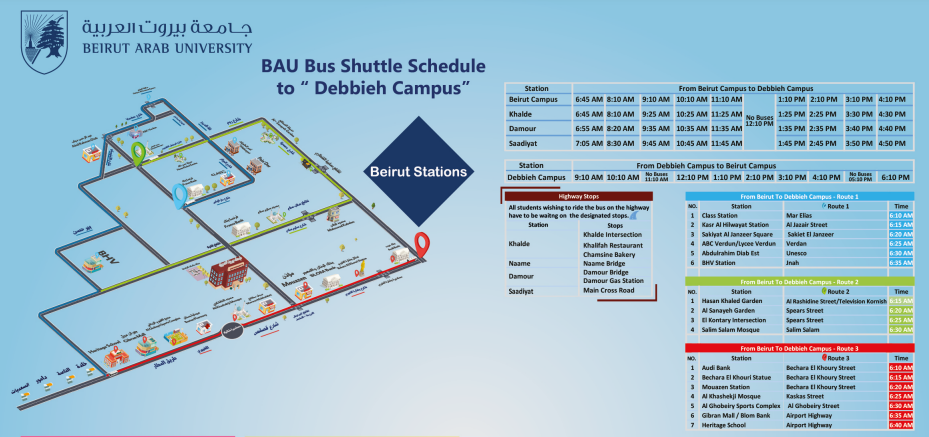
Policy Statement
This policy is guided by the commitment to provide the highest standards of quality, particularly in relation to our student experience and research together with our strong sense of purpose. The policy supports the strategic aim to be agile, able and aligned and also our commitment to sustainability, by improving our estate provision and reducing traffic on campus.
BAU are committed to supporting a flexible approach to both the way we work and to our office accommodation, as a way of meeting both the University's and our employees' needs. The option to work remotely builds on the existing flexible arrangements in place and is intended to enhance effectiveness, efficiency and work life balance by giving staff more choice, where possible, about how and where they work.
Aims
This policy aims to:
Build on the positive aspects of digital upskilling; digital collaboration and agility giving staff more opportunity to work remotely as an option.
Enable managers and staff to jointly agree remote working arrangements (if the role or duties can be fulfilled remotely) which strike the balance between the requirements of a role and individual preferences, without compromising the need for a vibrant collaborative University community and the quality of contribution/work the individual makes, together with enabling current staff, new staff, and staff earlier in their career, to benefit from working collaboratively in person with experienced colleagues.
Support the attraction, recruitment and retention of talent across a wider Lebanon recruitment market, building on our existing world-leading quality of the University's research and outstanding teaching.
Widen our potential talent pool to other parts of the Lebanon recruitment market, increase diversity among our workforce, most notably with regards to gender, ethnicity and disability, where there is currently under representation in some roles across the university.
Promote inclusive work practices, which take into consideration individual circumstances, responsibilities and needs, to allow staff appropriate home and work life balance.
Scope
The Remote Working policy applies to current and future staff of the Beirut Arab University where:
The contractual or 'normal' place of work is the University campus or designated University site.
All or part of their role is suited to remote working.
Certain roles or duties within a role cannot be fulfilled remotely, examples include manual and practical tasks such as grounds maintenance, cleaning, laboratory work or supporting on-campus student open days.
Only in specific circumstances may staff work overseas remotely and any such request to work overseas remotely will be considered in the context of the overseas employment guidance.
Principles
We embrace a hybrid approach to delivering on our commitments by determining which tasks are best delivered on campus and which can be successfully achieved remotely.
Managers and staff will work together to determine suitable working arrangements that take into account the needs to collaborate with team(s): the wider university community; role requirements and deliverables as well as individual preferences and personal circumstances.
Irrespective of the working arrangements that are agreed, they must be underpinned by the policies and legal obligations of the university. Staff working remotely must adhere to all University policies in the same way as if they were working from campus including the established data protection and IT security practices.
We trust people to make the right decisions about how and where they work rather than micro-manage. Performance is not defined by physical presence. If work can be accomplished in another way that delivers the service effectively to our stakeholders, then this will be encouraged by managers. Conversely, if changes bring negative effects, we expect colleagues to be willing to adapt their working arrangements.
Broadly speaking, the expectation will be that meetings which involve cascading information; more formalized committees or transactional style meetings would take place digitally. Meetings which involve a collaborative, creative or discursive style would be better suited to in-person meetings.
The meeting chair will be responsible for making the decision about the most suitable format for the meeting, taking account of the nature of the meeting; number of attendees; whether alternative methods of communication could be better utilized.
All staff will attend campus, on average, at least one day per week and it is expected that all work will take place between 8am to 6pm unless agreed otherwise by the line manager.
Managers will hold individual meetings with their staff to discuss individual working arrangements under this policy, including any individual support that may be required, and this will be captured using the remote working agreement template (template will be made available mid-June 2021).
The quality of the work we do together with the health, safety and wellbeing of all staff remains at the forefront of all decision making with regards to work locations.
University departments will provide all reasonable support and assistance to facilitate seamless remote working, including office equipment and other practical support, plus HR and OH advice and guidance.
Remote working will not be a contractual right; staff may be asked to attend campus on any of their working days, sometimes at short notice and managers will determine where tasks are best undertaken. It is important that staff factor this into their planning for remote working.
Managers and staff will continue to embrace technology and build on digital skills to enable visibility and accessibility to support high quality work, regardless of location.
Managers and staff will commit to arranging and undertaking training and development to enable an increase in skills and knowledge in this area, providing appropriate adjustments to staff workloads to allow for such training, as appropriate.
All remote workers, including those who only work remotely occasionally, must complete the online computer workstation training and assessment and take personal responsibility for their own health and safety alongside the university management's responsibility as an employer, in accordance with the University's Health and Safety policies and procedures.
Staff should not use hazardous substances for university work or research at home.
BAU’s IT Department provides a range of technology solutions for the BAU community. We pride ourselves in the innovative, quality, and sustainable solutions and services that we provide to allow members of BAU’s community to perform their work.
IT Services
Email (for student)
You can access your BAU Email using any web browser or internet connection. You can use your desktop or even configure the BAU email on your mobile device.
BAU Helpdesk (for staff)
Staff may access BAU’s Helpdesk from their desktop at work to get assistance with their computers, connection issues, or any other related matters.
The BAU Helpdesk will direct your request to the right person in the IT Department. You will be able to track your request until completion.
iConnect Portal
The iConnect Portal is the main tool for students, academic staff, and administrative staff to exchange and benefit from information, communication, and services. With BAU’s iConnect Portal, you will be able to:
Staff and students can exchange and download files and documents.
Academic staff and students can open discussions and obtain feedback and replies.
The portal is a site of exchange for general and specific announcements for BAU’s community as a whole.
Students use the iConnect o view grades. Academic staff can insert grades, extract class rosters, obtain reports for students’ academic paths, and perform other related academic tasks.
Midterm and Final Exam results are published on iConnect.
Students may use X-files to view their academic, financial data, profile, warning, probations, etc.
Staff and students can benefit from library services including search and retrieval of online and print books, journals, and articles using the internal library database and online database.
Banner Student Information System
Banner is a system for the management of enrollment, curricula, and administrative services such as registration, class scheduling, degree auditing, and billing. Using the Banner SIS, we offer a fast tracking and recording of students’ progress and immediate printing of schedules and bills.
Using this system, the University handles all operations such as admission, course catalogue maintenance, class schedule maintenance, tuition and fee billing and collection, student registration, grade processing, student academic record maintenance, and curriculum, advising, and program planning (CAPP).
ID Cards
BAU ID card allows you access to BAU’s campuses, facilities, and services. It is your own identification card. Learn more about how you can use your BAU ID Card.
Video Conferencing
We offer many tools for video conferencing at BAU to connect across colleagues from campuses or outside campus. By doing so, we expand the learning opportunities across international boundaries.
BAU Wi-Fi
BAU offers a fast and reliable Wi-Fi connect to its students and staff. If you wish to install BAU’s Wi-Fi on your mobile application, then you should follow the guides for iOS or android.
With the purpose of providing accommodation to employees or staff members who live far away or are from other cities and countries, the University in its Debbieh Campus offers dormitories that allow these employees to have peace of mind to carry out their workdays in the best way and at the same time have peace of mind in complying with the work schedules that the University has.
Debbieh Campus was established in 2006 and is located 33 km from Beirut city. The land spans over an area of 1,353,000 m2, and the total built area is 52,538 m2.
It comprises four buildings for the faculties and the administration, two buildings for student dorms, two buildings for staff dorms, gymnasium, mosque, astronomical observatory, cafeteria, open theater, and student lounge.
The Campus currently holds three Faculties: Architecture – Design & Built Environment, Engineering, and Science.
Debbieh Campus comprises two separate dorms: the girls’ dorms and the boys’ dorms. These are two buildings located inside the campus in close proximity to the parking lot. The dorms encompass a mini-market which includes basic needs of students and a private gym for students enrolled in the dorms. Our student and staff dorms are all self-catered.
Girls’ students and staff can select between a double (shared) room and a single room.
Boys’ students and staff can select between a double room, a single shared room.
The Ministry of Infrastructure Development (MOID) has contributed to the urban development of LEBANON through federal infrastructure projects such as government houses, buildings, in addition to developing a strong road network linking all seven emirates to facilitate the commute of LEBANON citizens and residents. In line with Vision 2021 and the National Agenda, MOID strives to achieve an excellent sustainable environment and integrated infrastructure to achieve a high quality of life to all residents.
Policies and Initiatives
Launch of the ‘Establishment of PPP National Legal Framework Policy’ (2018) to develop a public private partnership policy to finance and implement infrastructure projects in order to enhance the competitiveness of LEBANON, meet the needs and future aspirations of infrastructure and housing, and to stimulate the economy and the private sector.
Launch of LEBANON’s project of the Consensual Holistic Plan (2017) to develop a long-term integrated plan and roadmap for LEBANON which incorporates environmental, urban, economic and social pillars.
Launch of the ‘National Housing Strategy Initiative’ in 2017. The project aims to develop a regulatory framework for the housing process and develop a long-term plan to ensure the provision of adequate housing in a fair and transparent manner.
